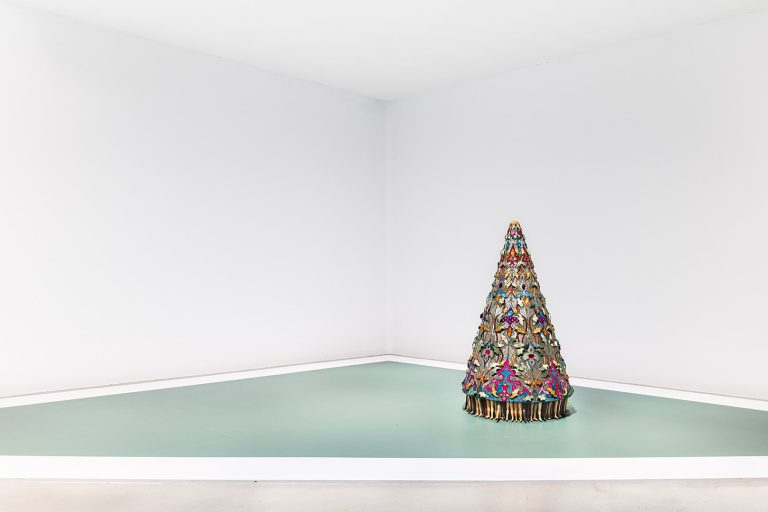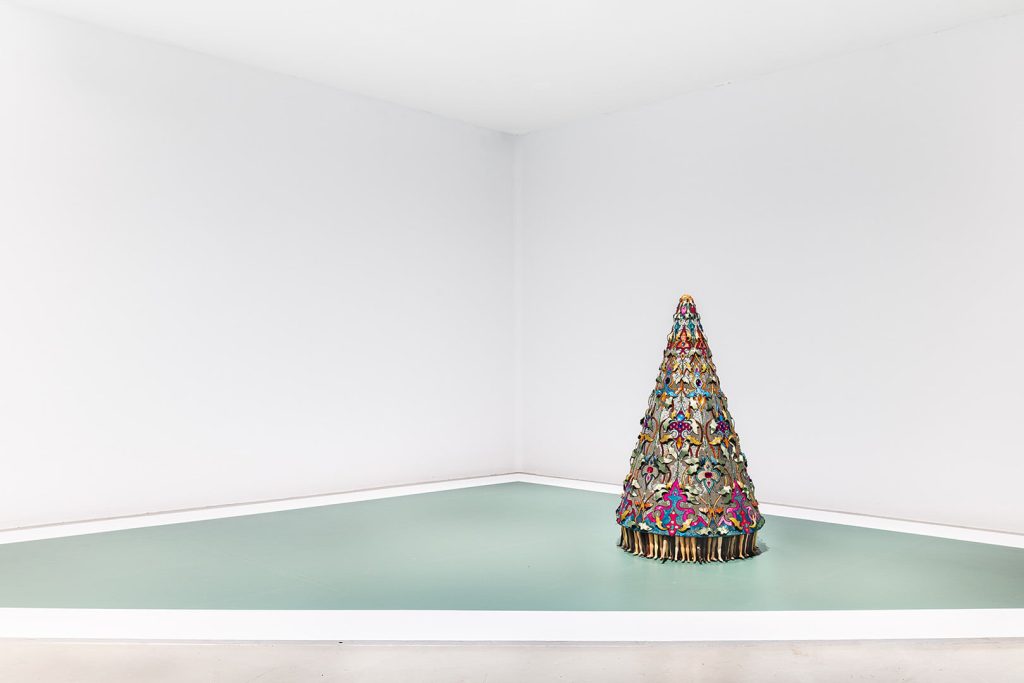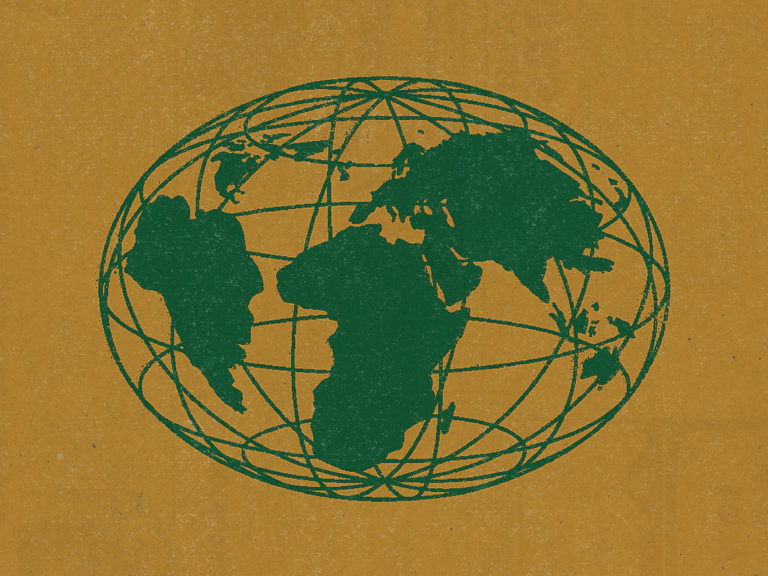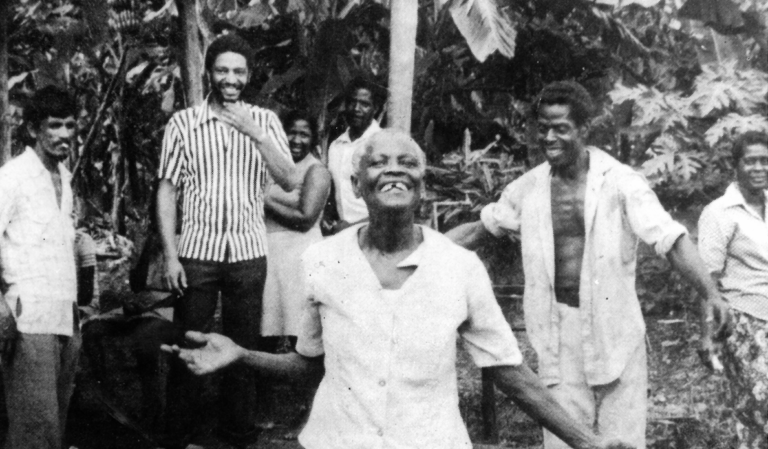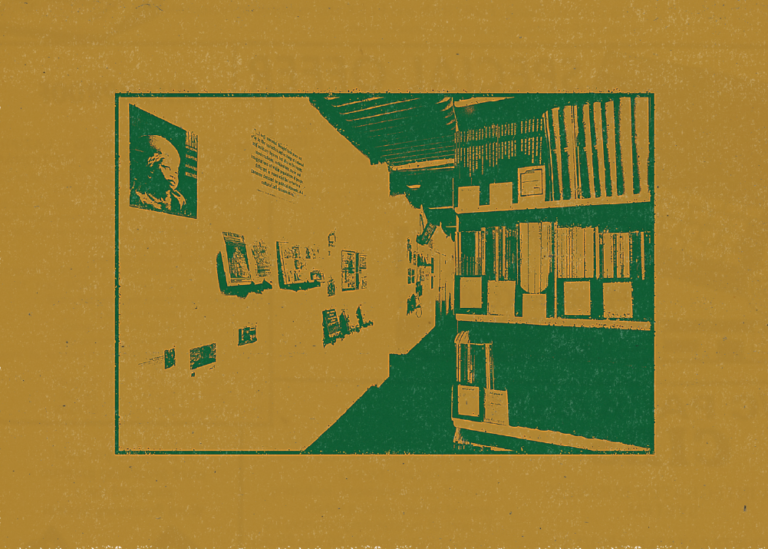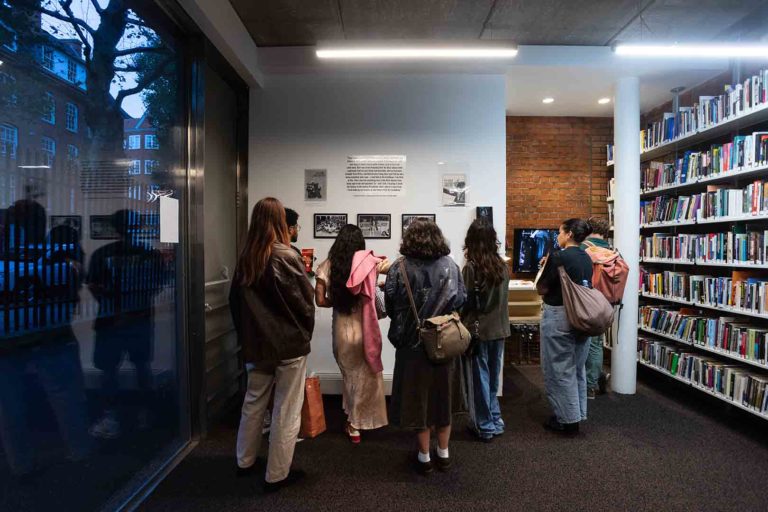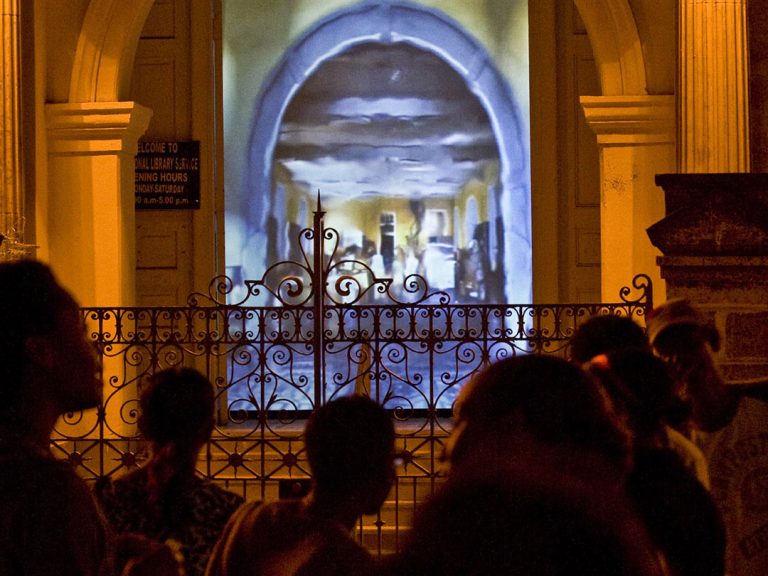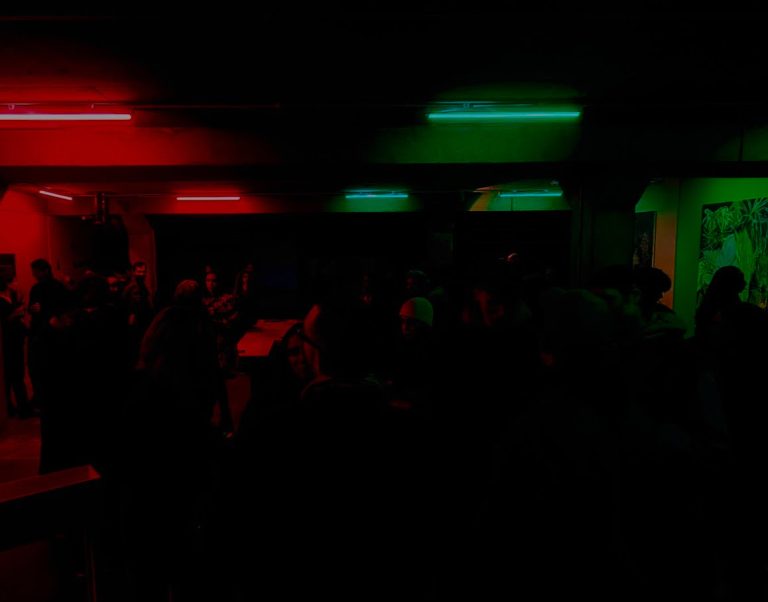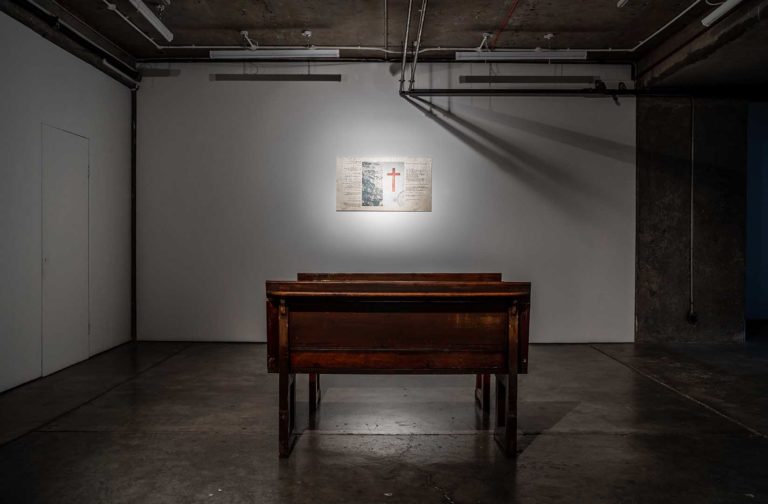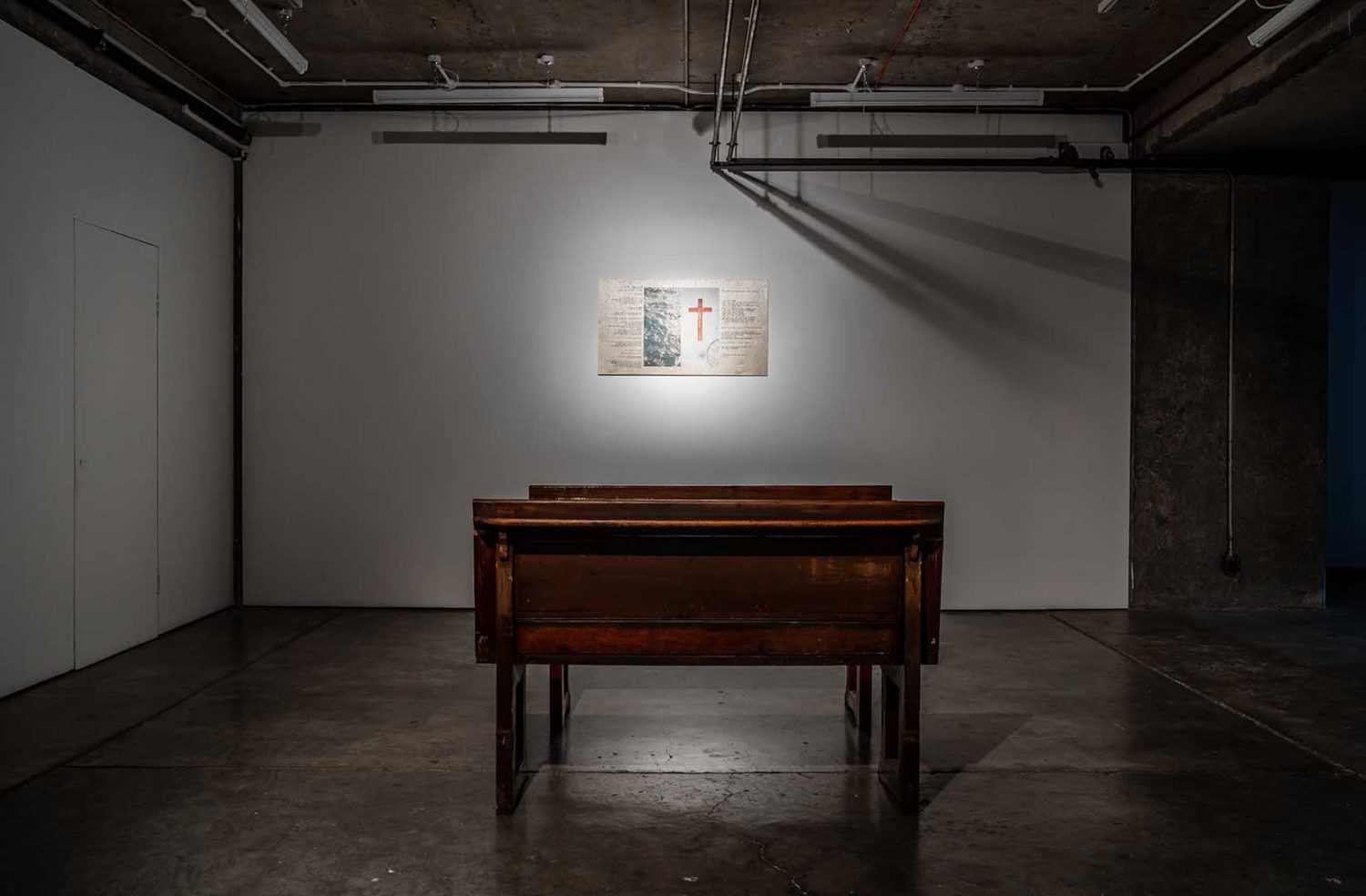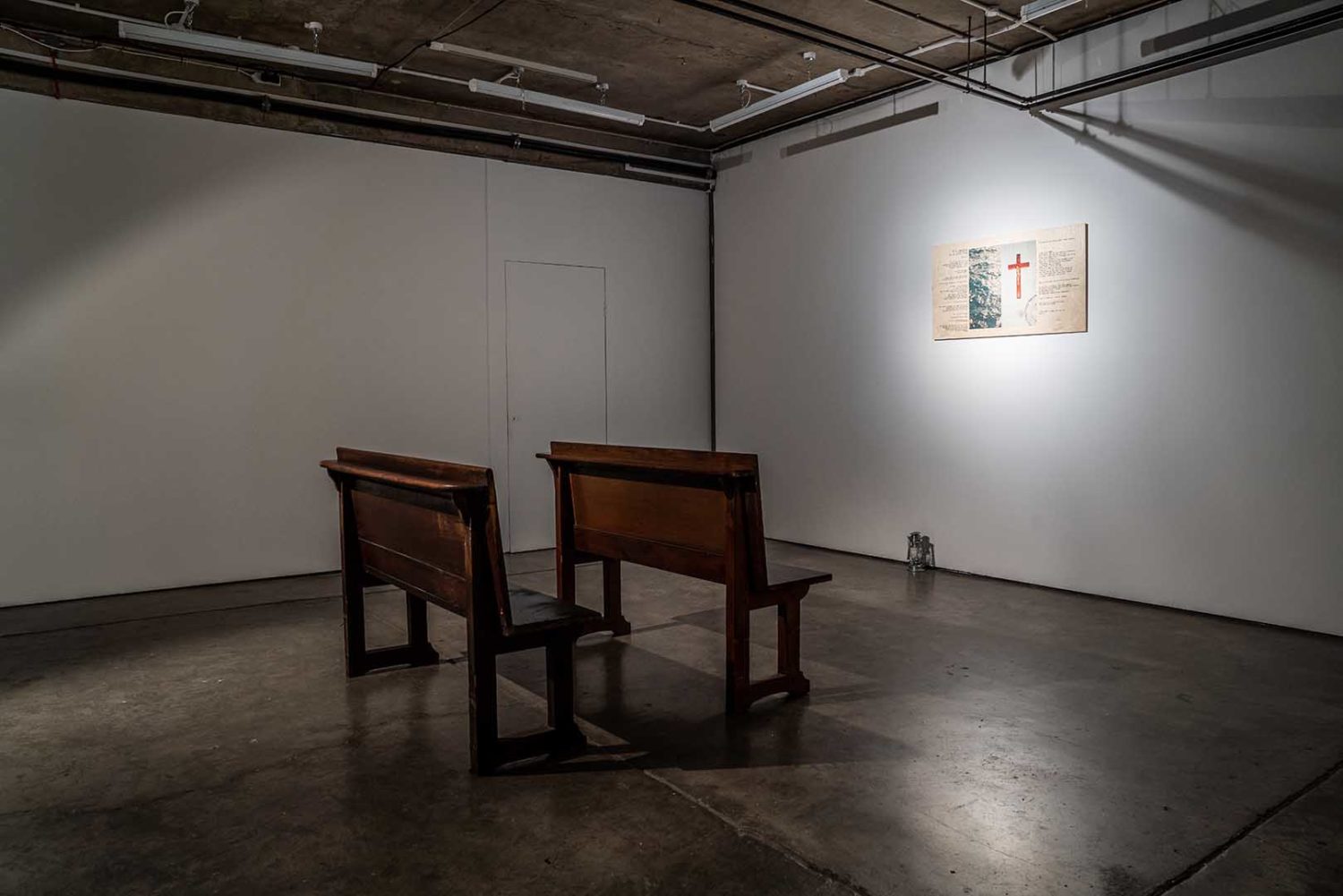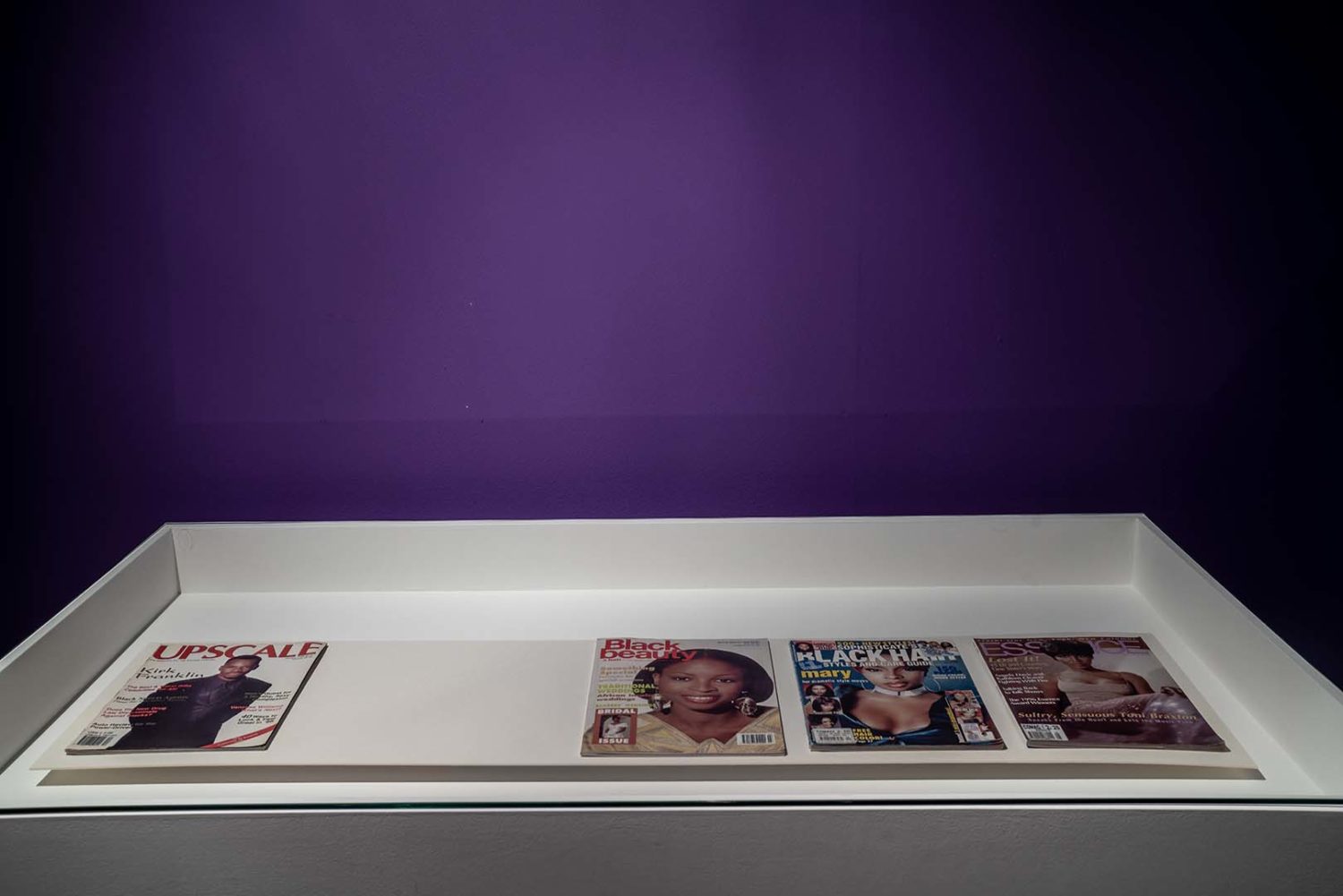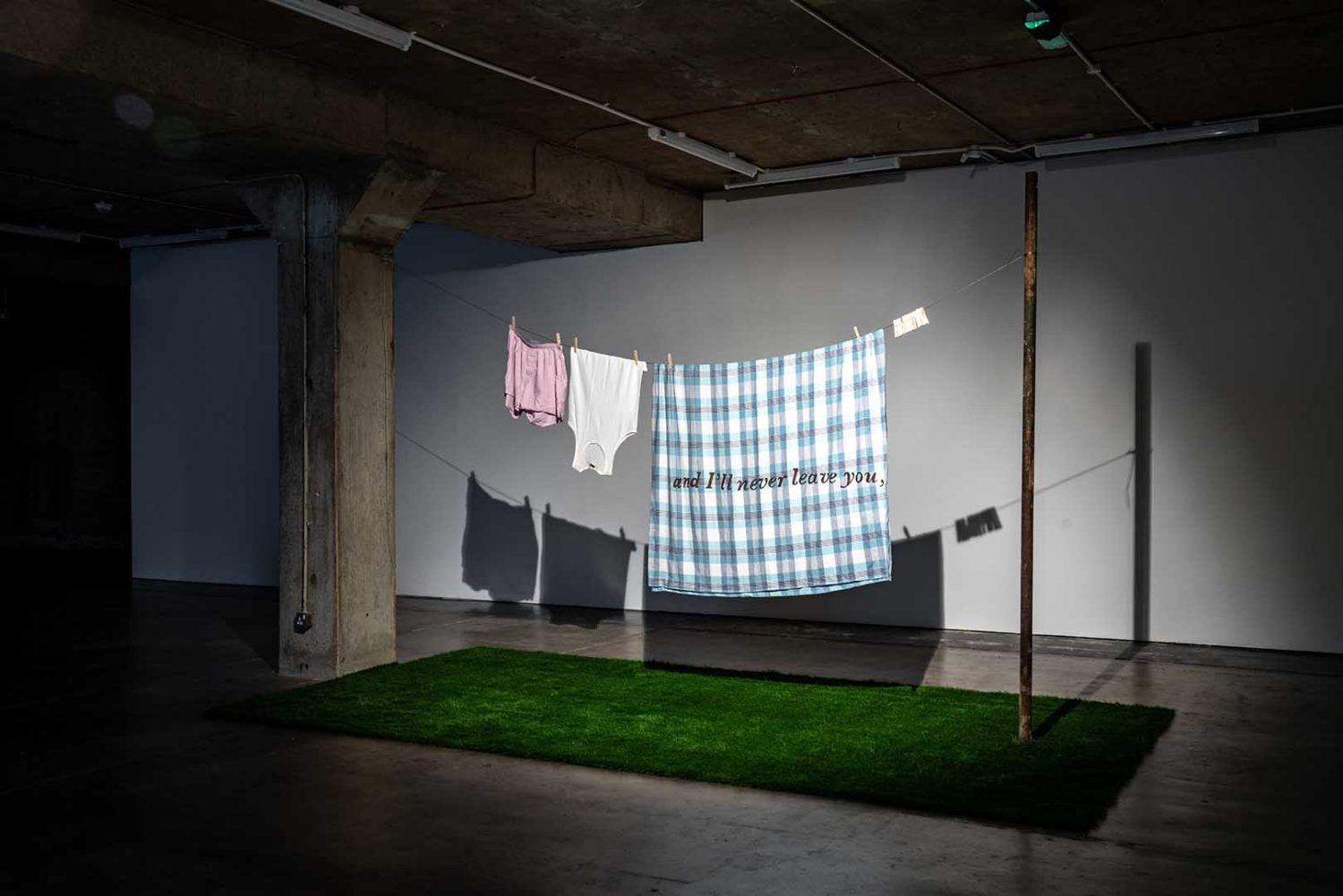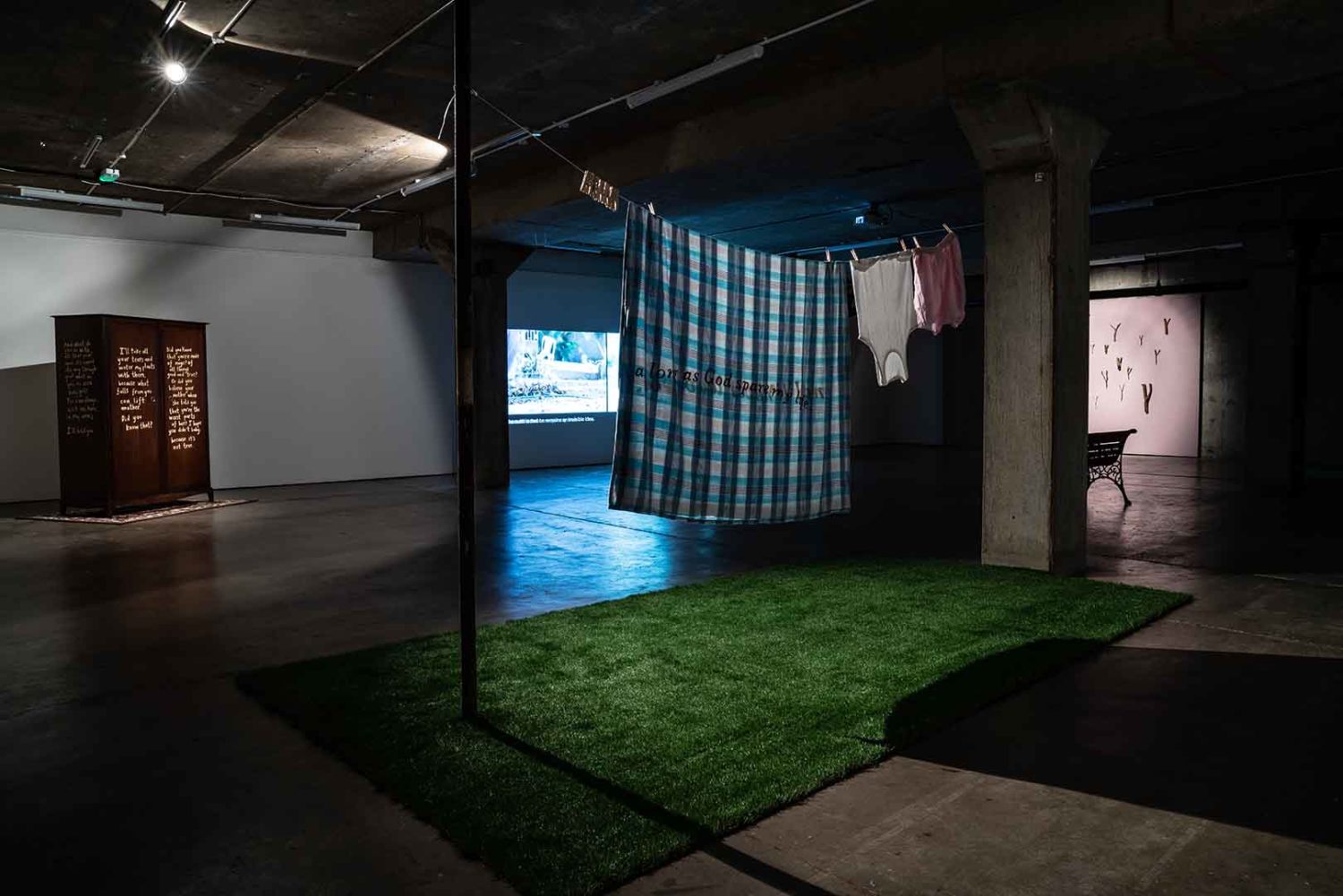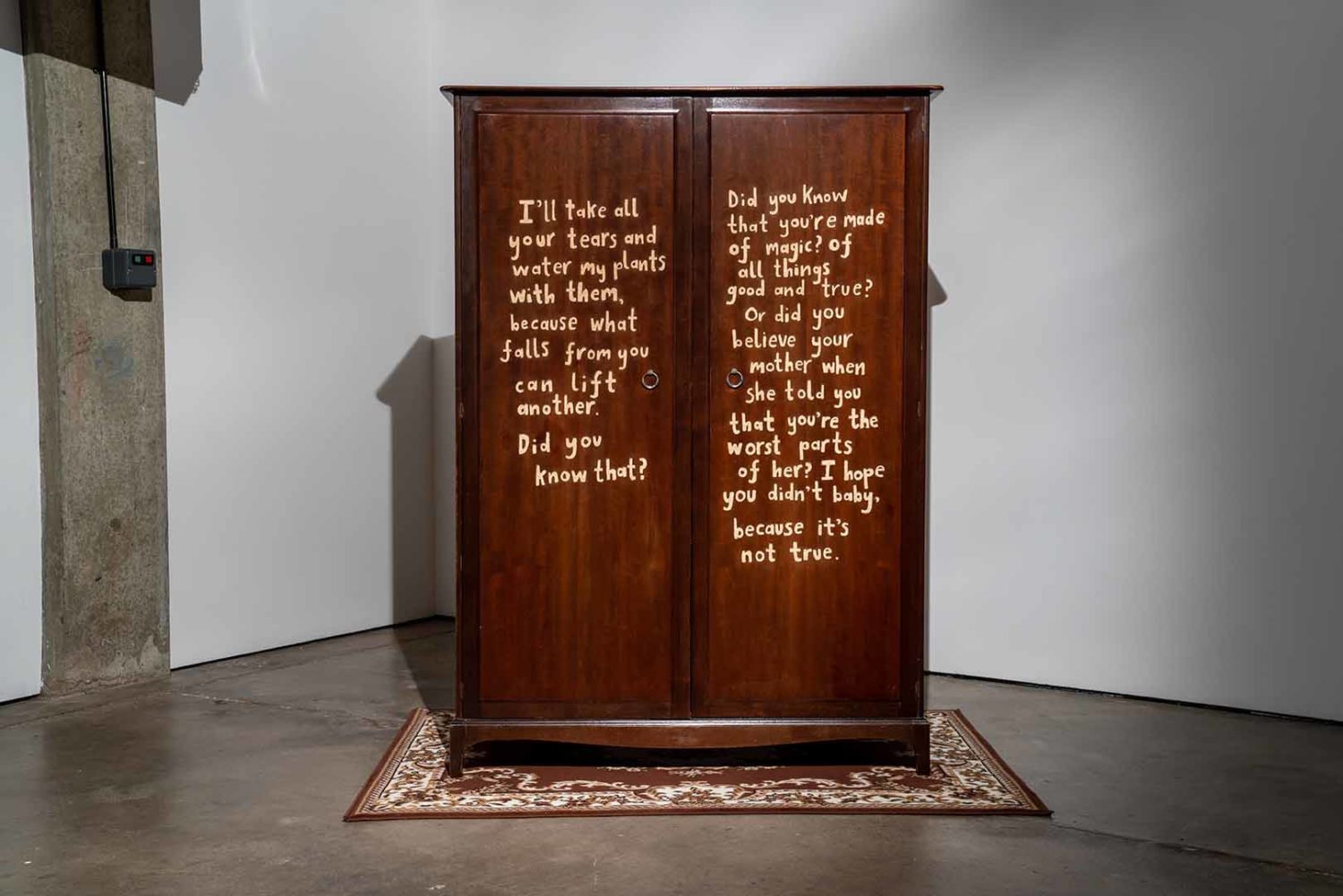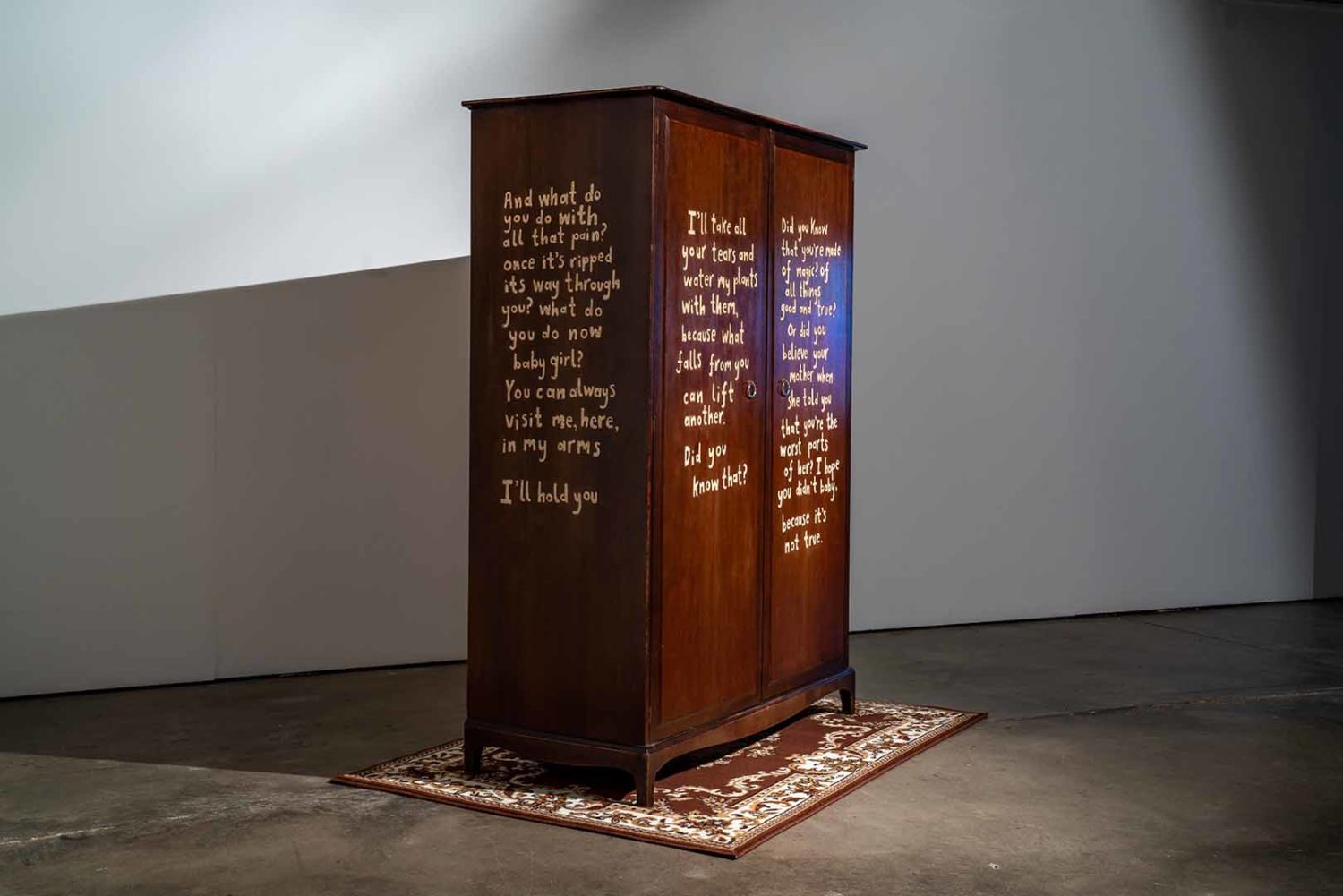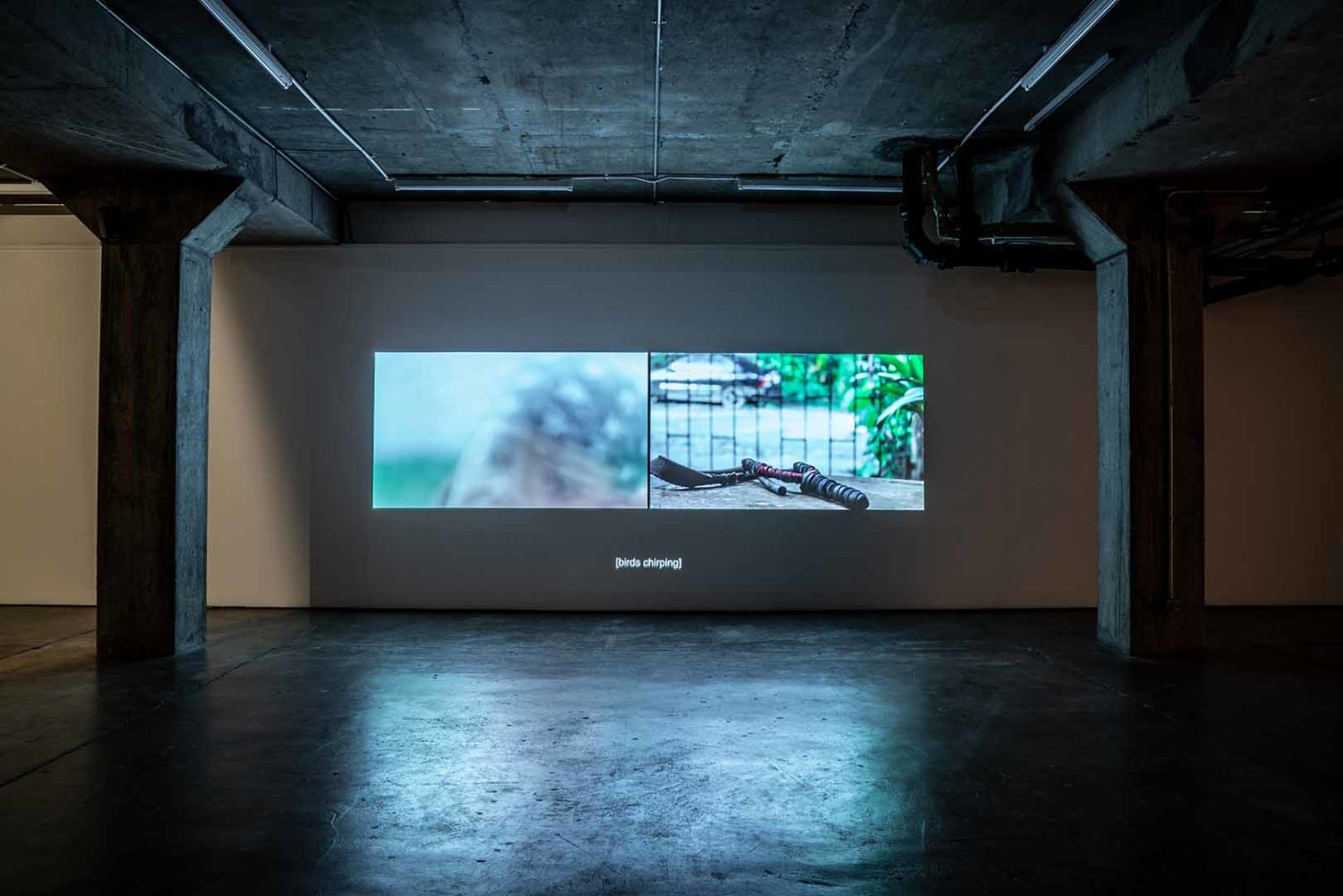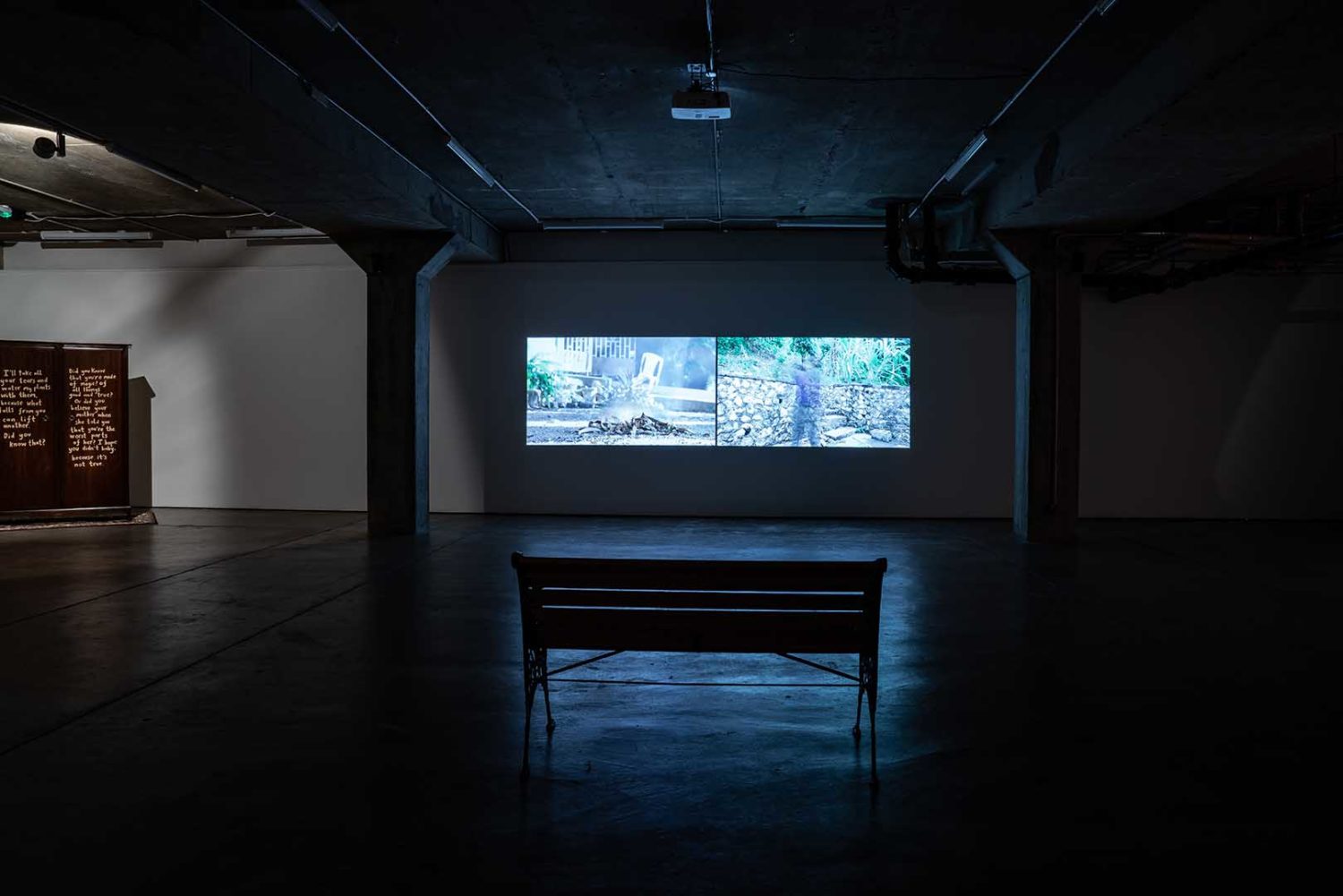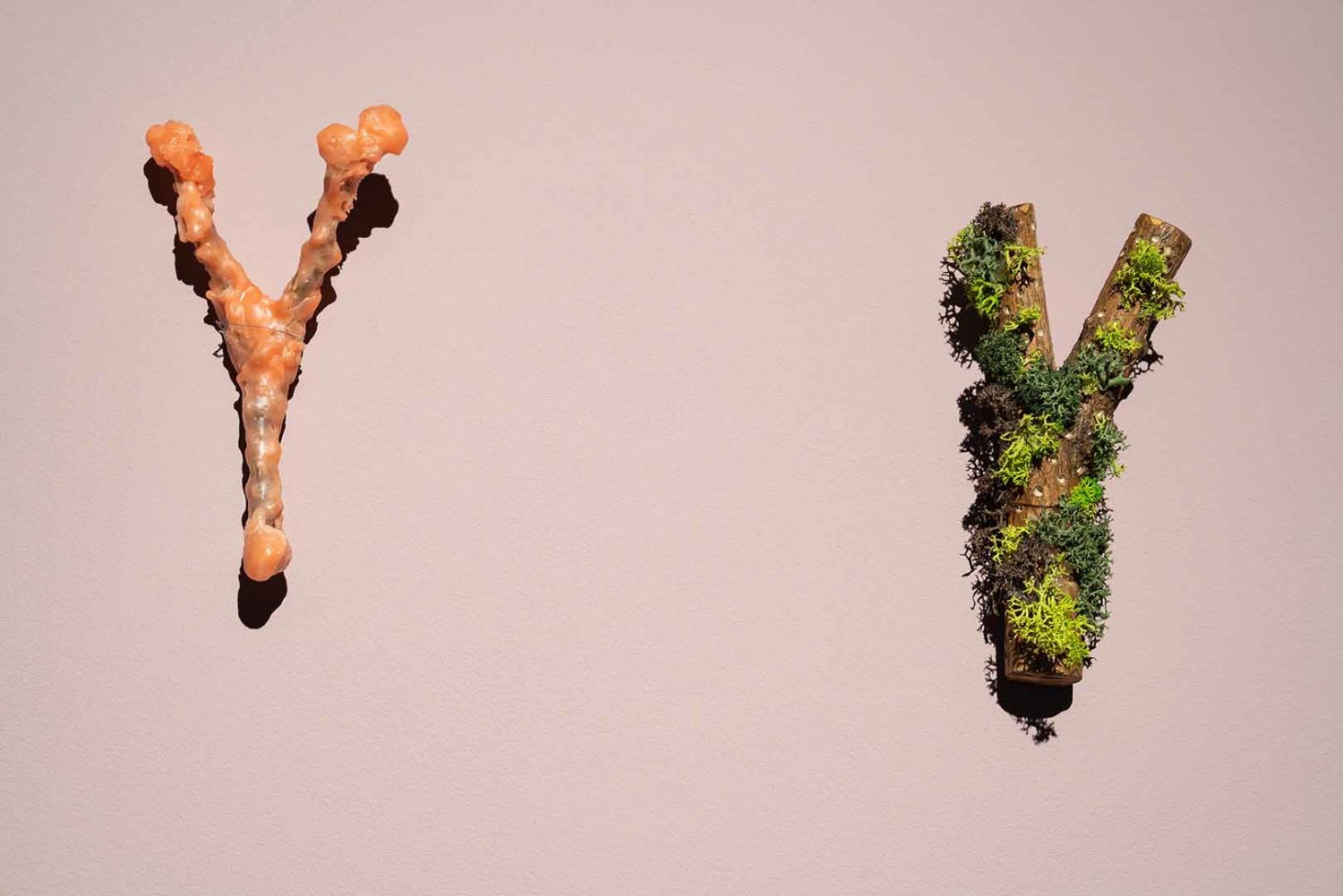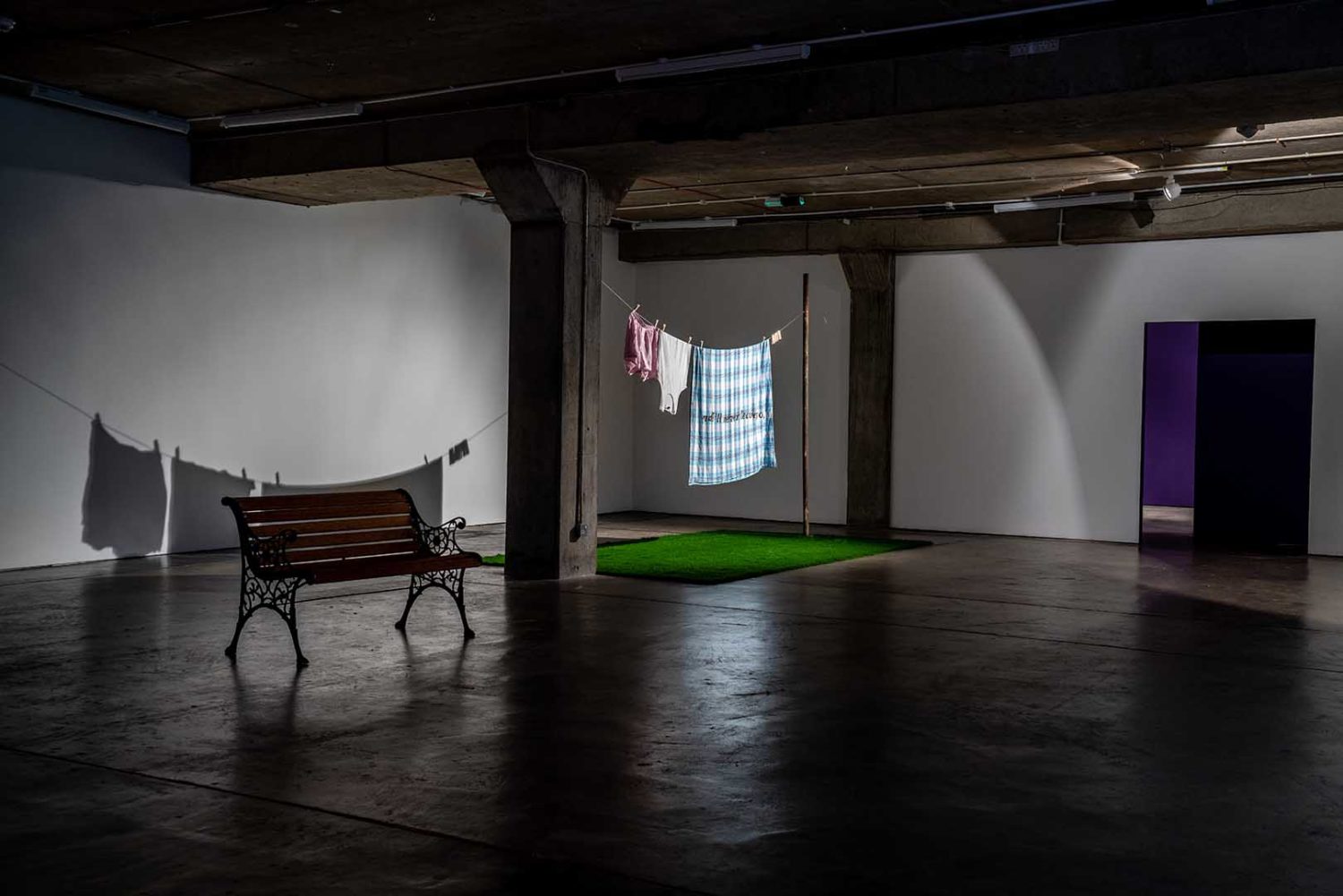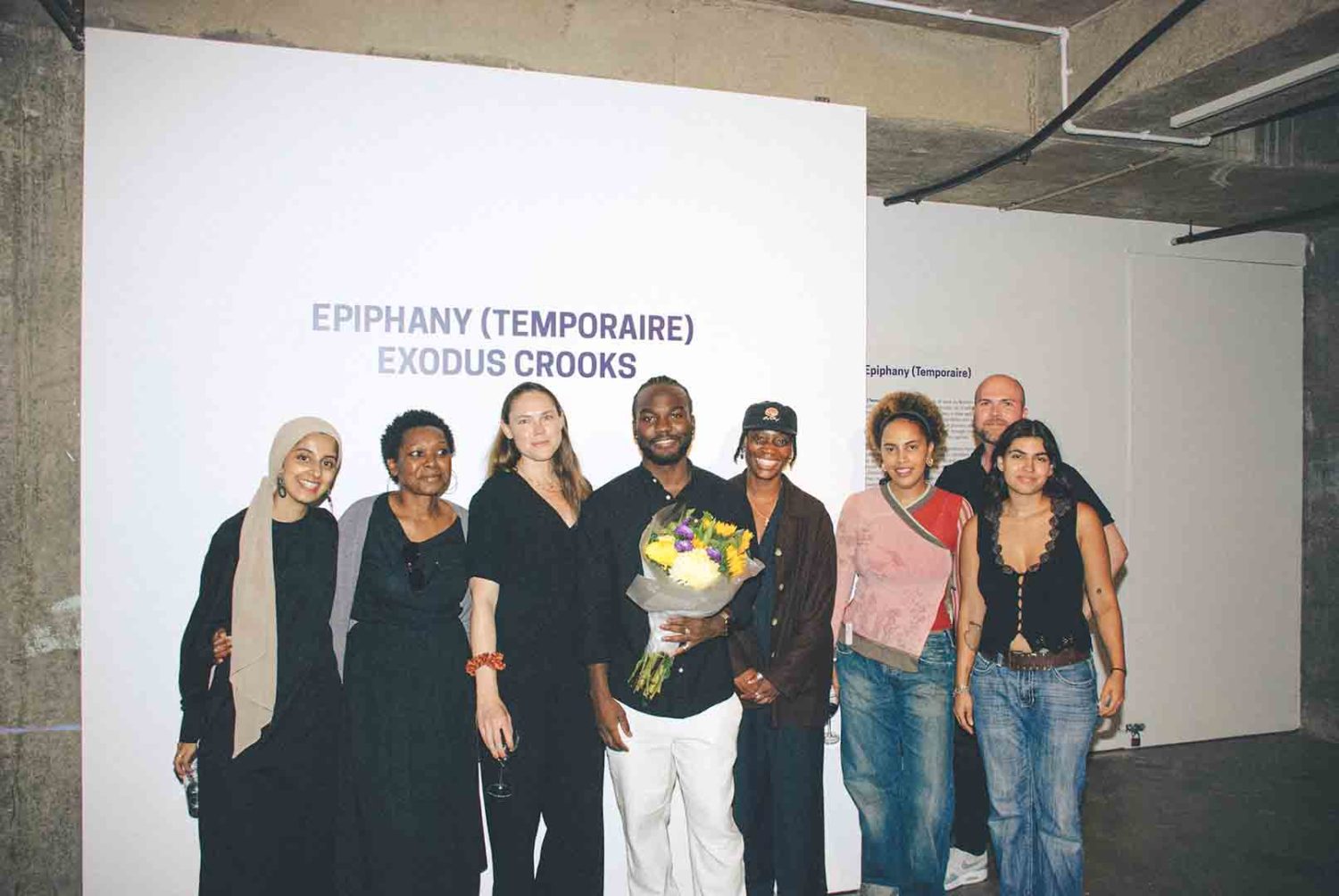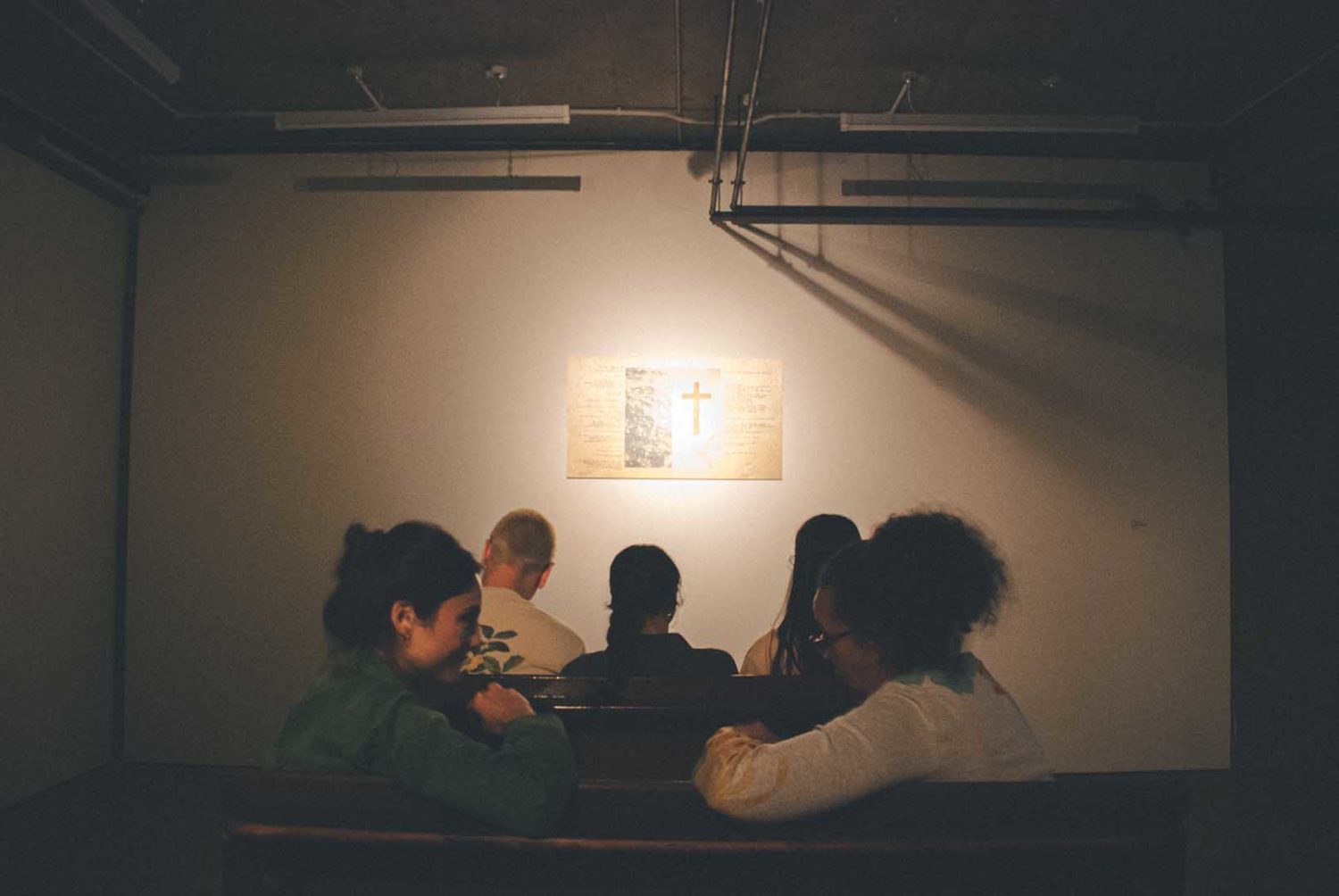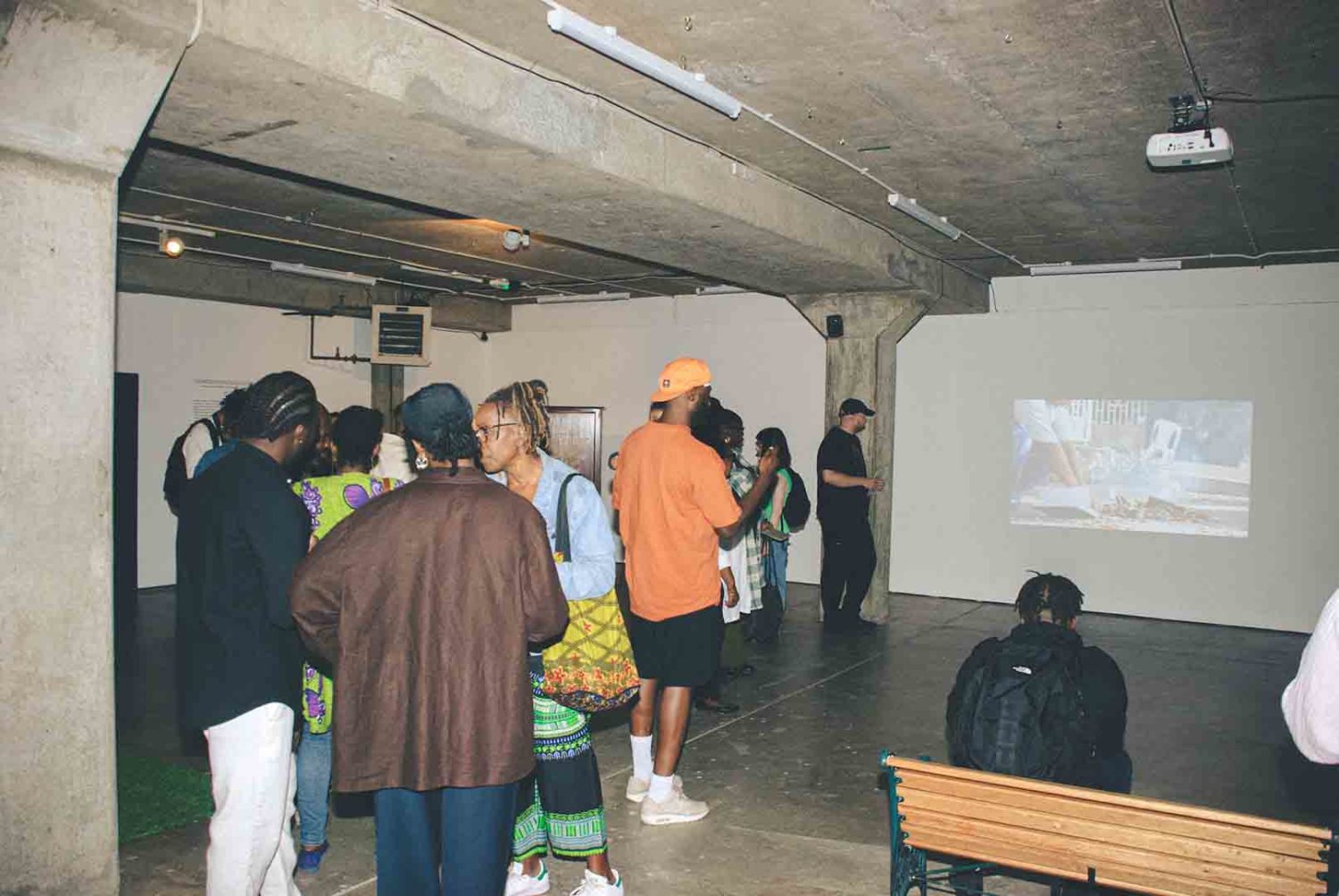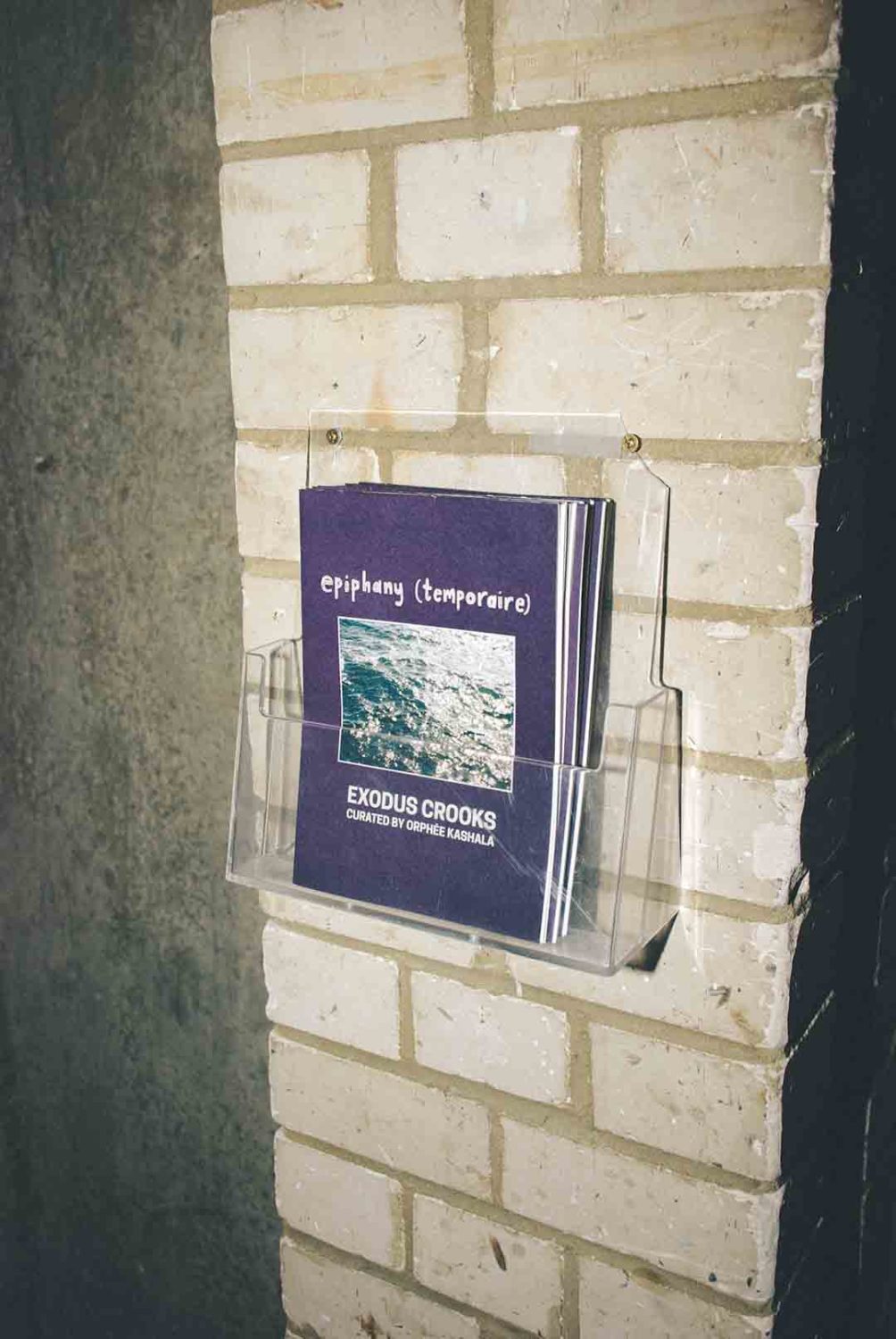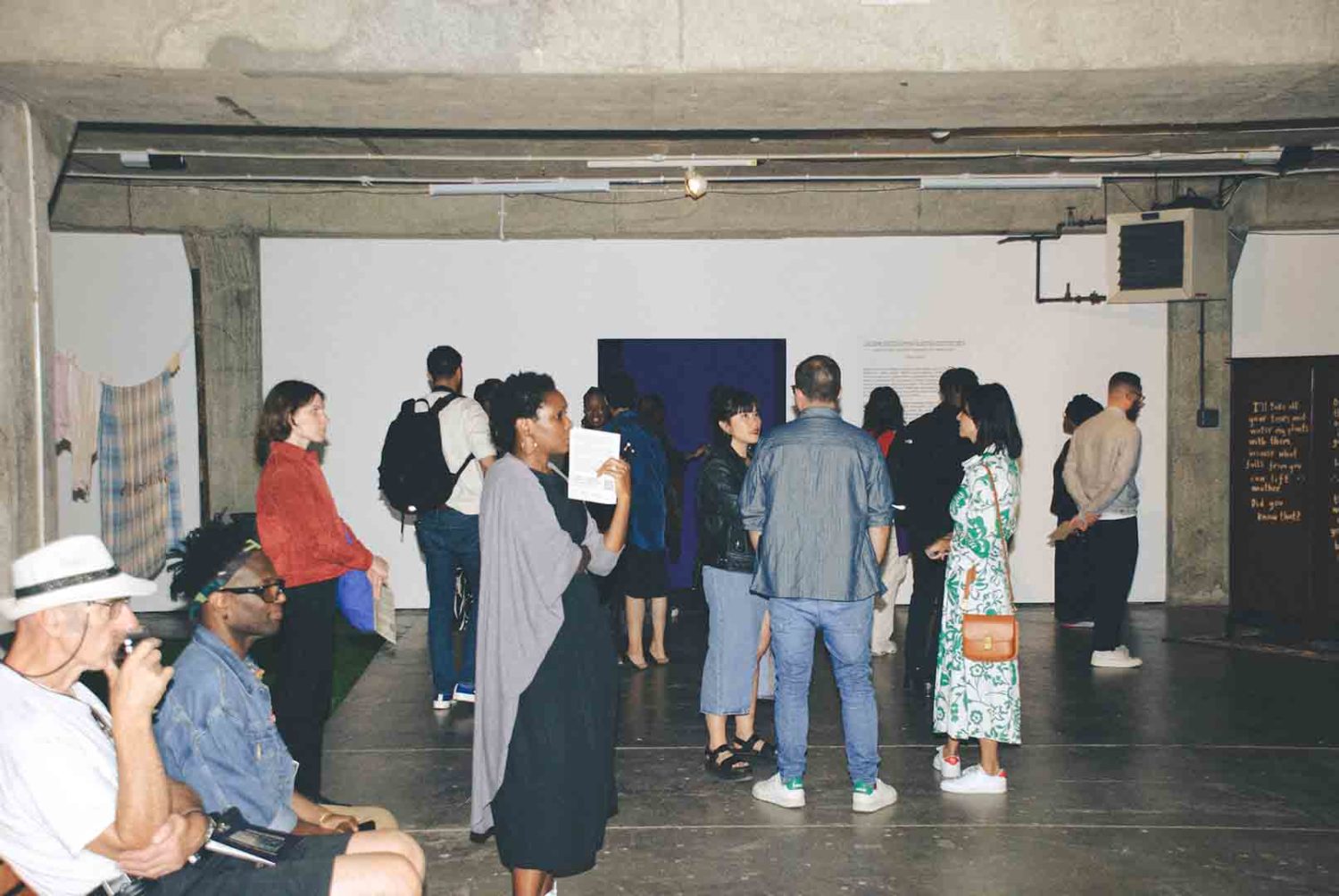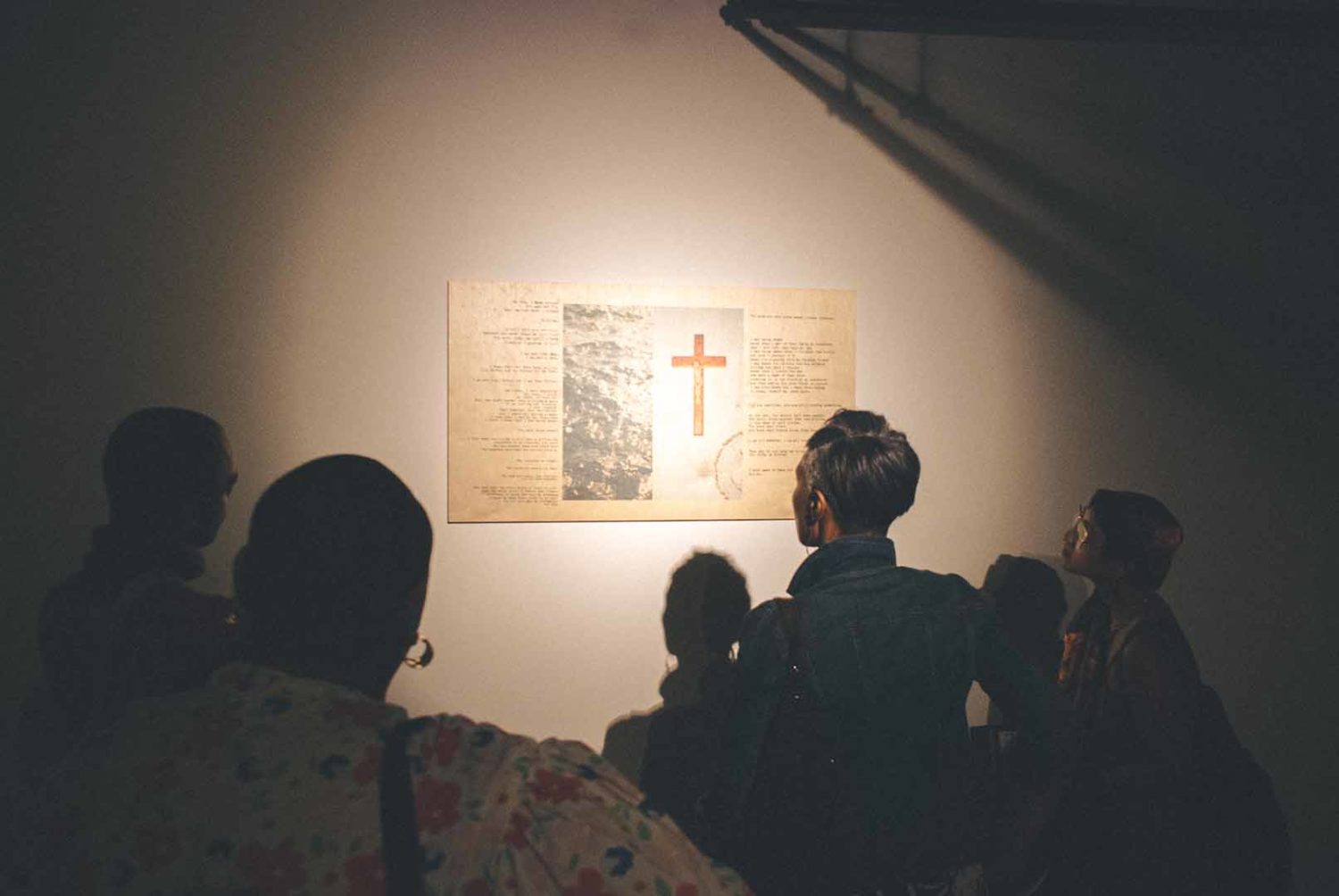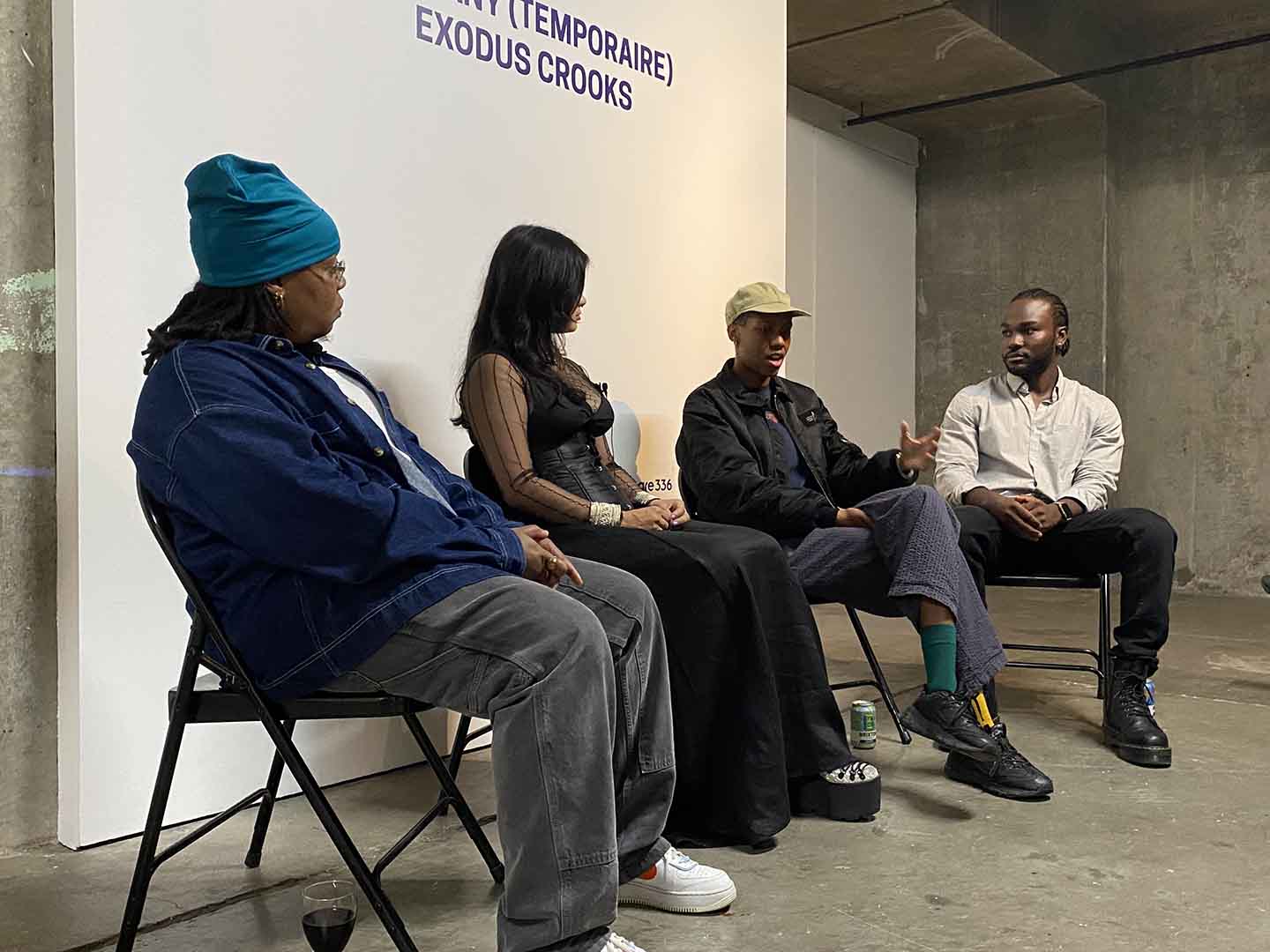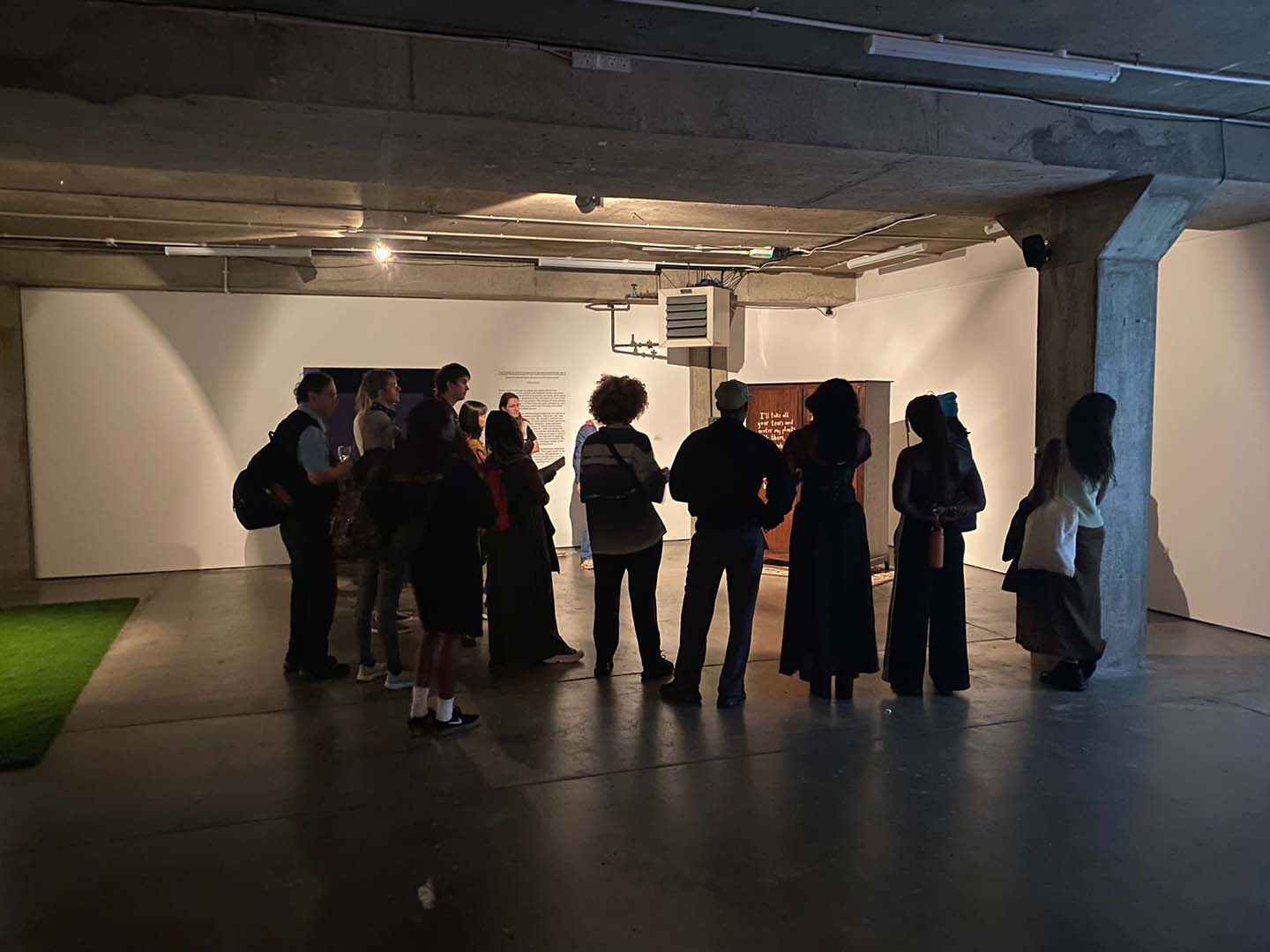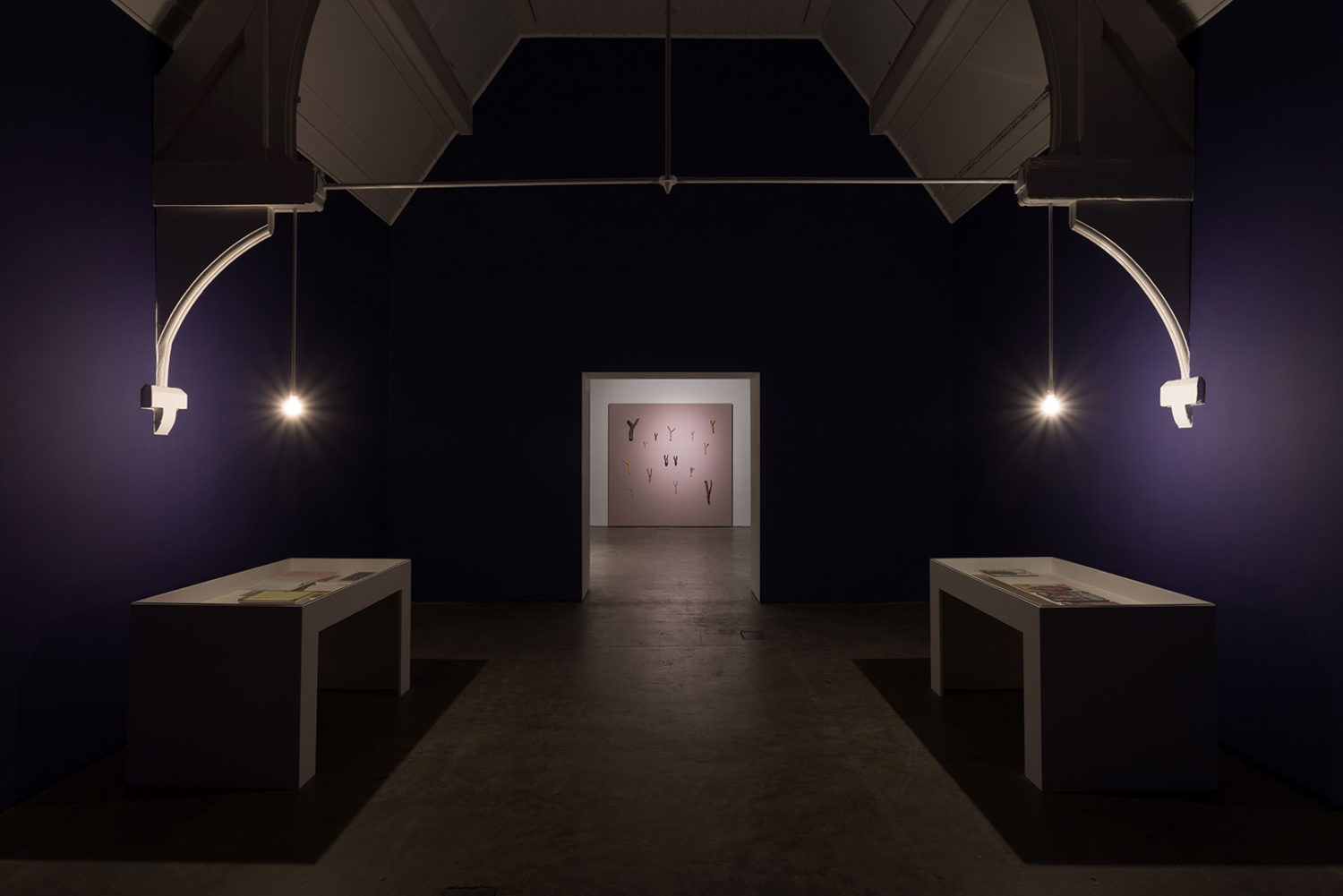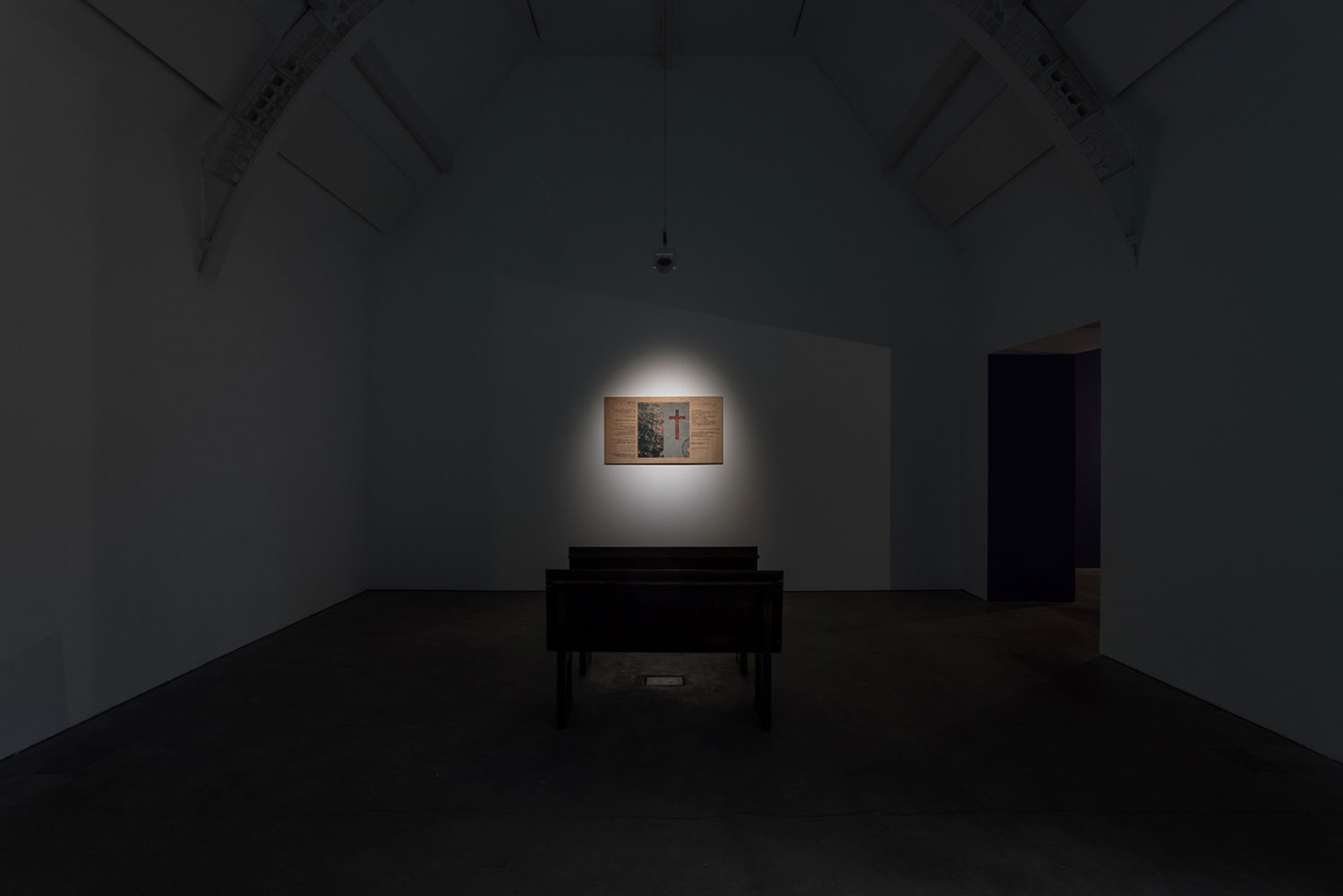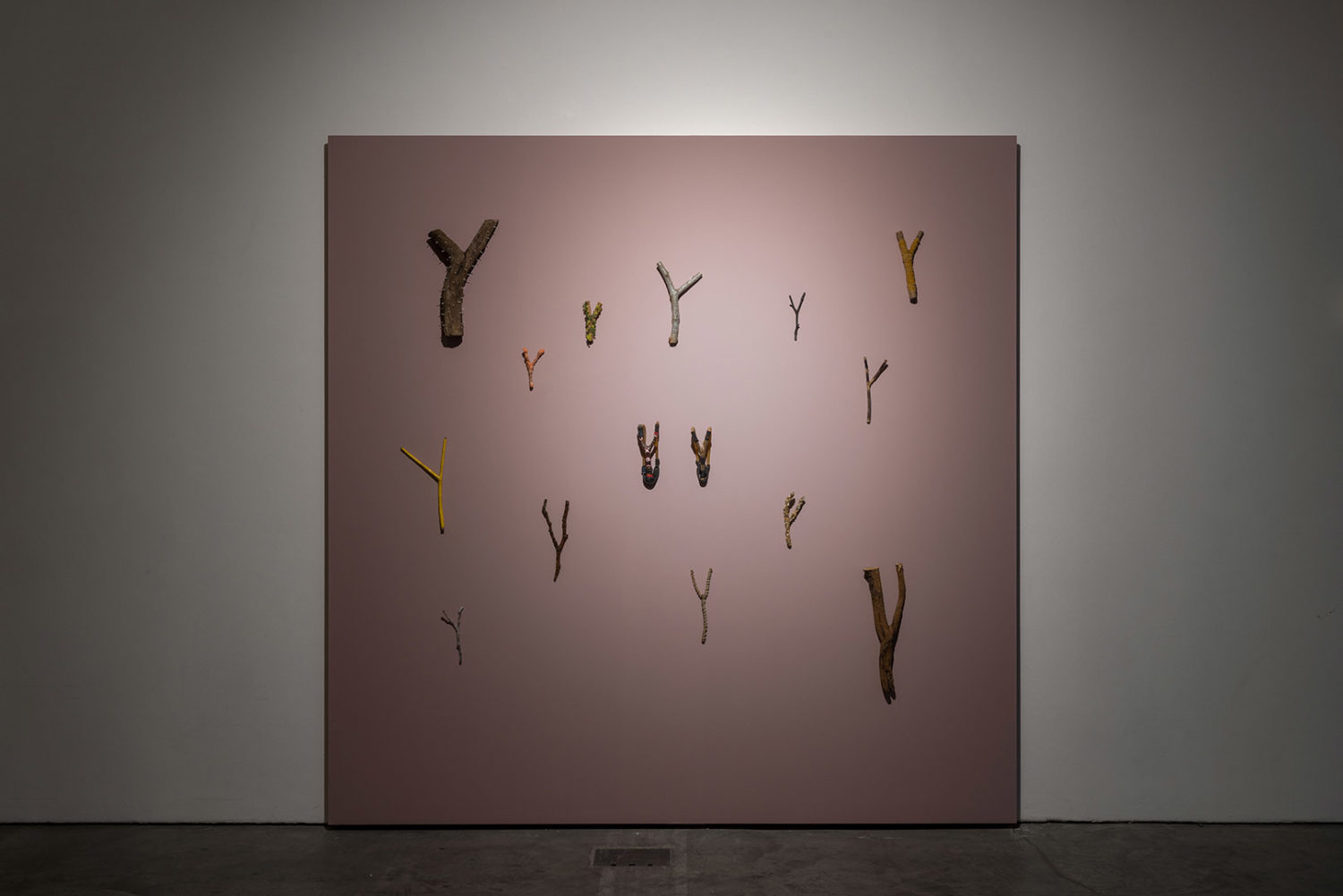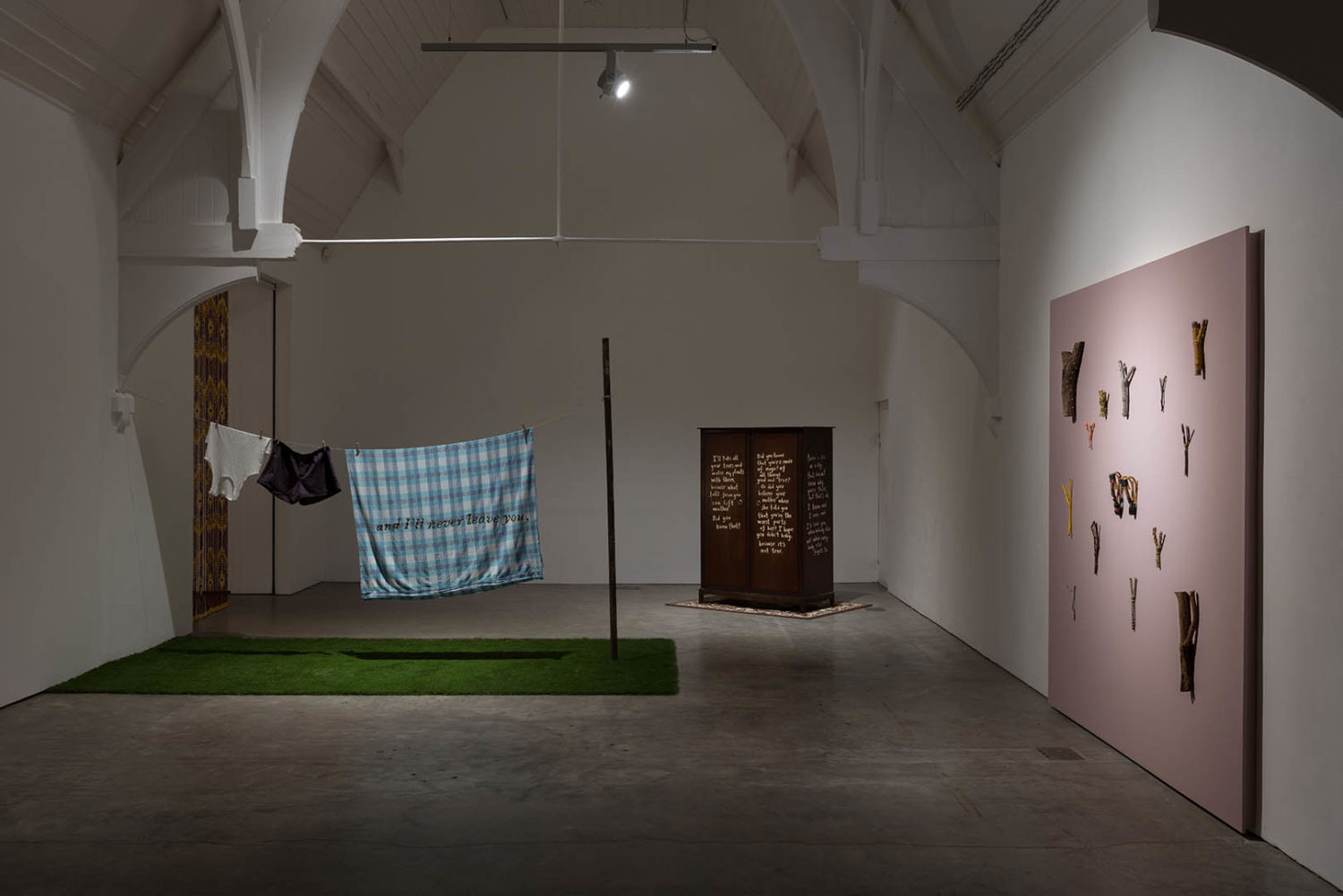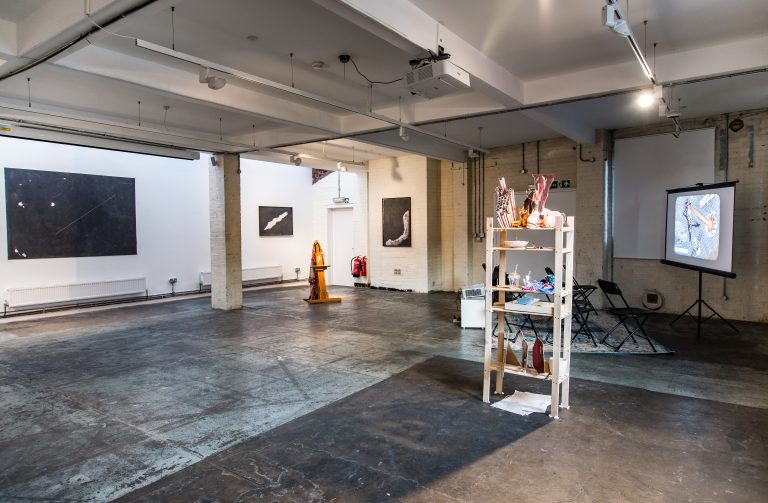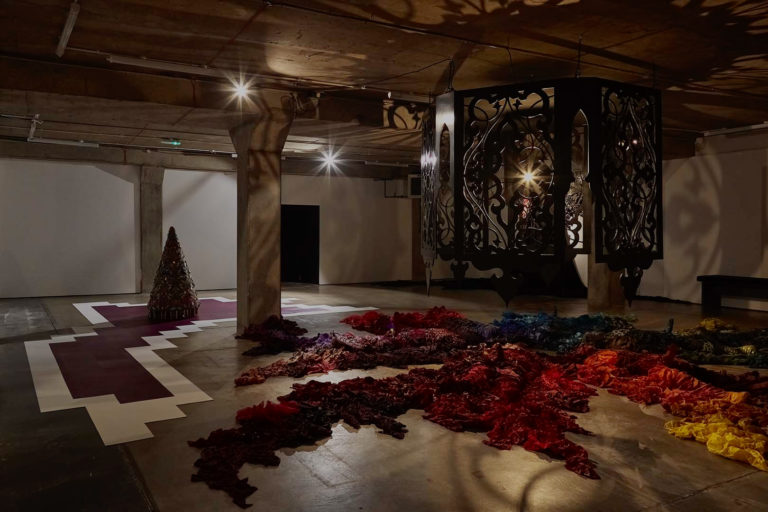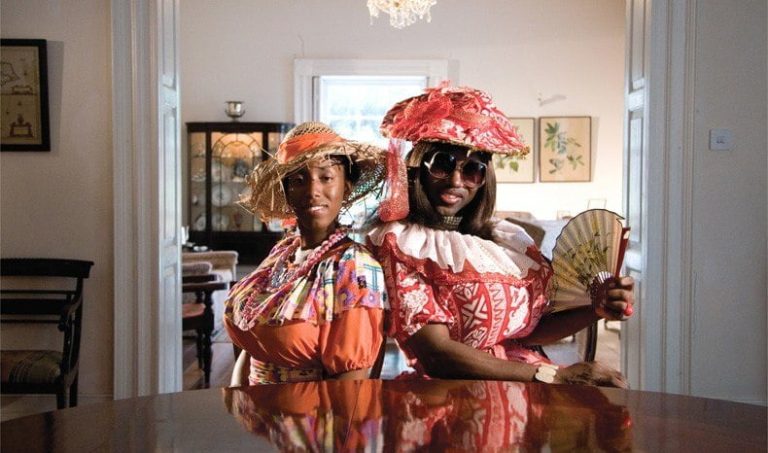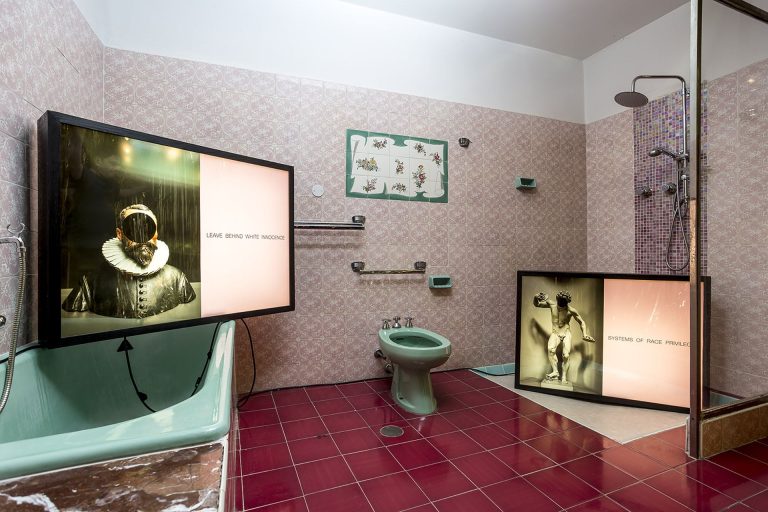Shifting the Centre
Dates:
13 Mar 2023 - Ongoing
People:
Location:
Black Cultural Archives, Institute of International Visual Arts (iniva), Healing Justice London
Shifting the Centre is International Curators Forum’s archival activation project dedicated to excavating the radical observations, emancipatory dreams, and revolutionary practices of anticolonial thinkers to develop counter approaches by asking: what kinds of ideas emerge when those resisting dominant forces are the protagonists of world history?
The project explores connections between seemingly unrelated events, people, issues and objects as a way of rejecting a single vantage point from which to understand, tell and mobilise histories. Ultimately, the project advances a curatorial approach that seeks to widen all that dominant forces attempt to narrow: our vision, imagination, and the political possibilities available to us. Shifting the Centre forms part of ICF’s Systems Reclaimed project, which aims to create a platform for creative practitioners to highlight and interrogate specific manifestations of systemic inequality both within and beyond the arts.
People:
Shifting the Centre is International Curators Forum’s archival activation project dedicated to excavating the radical observations, emancipatory dreams, and revolutionary practices of anticolonial thinkers to develop counter approaches by asking: what kinds of ideas emerge when those resisting dominant forces are the protagonists of world history?
The project explores connections between seemingly unrelated events, people, issues and objects as a way of rejecting a single vantage point from which to understand, tell and mobilise histories. Ultimately, the project advances a curatorial approach that seeks to widen all that dominant forces attempt to narrow: our vision, imagination, and the political possibilities available to us. Shifting the Centre forms part of ICF’s Systems Reclaimed project, which aims to create a platform for creative practitioners to highlight and interrogate specific manifestations of systemic inequality both within and beyond the arts.
Dates:
13 Mar 2023 - Ongoing
Location:
Black Cultural Archives, Institute of International Visual Arts (iniva), Healing Justice London
The Reading Group
Date: Tuesday 26 March 2024, 6-7:30pm
Location: HJL’s Dream Space, 352 Holloway Road, London N7 6PA
Presented by: ICF and Stuart Hall Foundation
We invite attendees to bring in a single text, poem, quote, artwork, or excerpt which you associate with the notion of Shifting the Centre or Systems Reclaimed to share and discuss during the open and informal group discussions. If you prefer not to bring your own text, we had included a link to a Miro board which houses all of the texts we’ve explored through the project so far.
This session opens up a space through which we can generate collective consideration of the ways in which critical texts can act as important analytical tools for addressing urgent political realities, such as the colonial systems impacting peoples living in places like Palestine and the Democratic Republic of Congo, through historical readings of revolutions like the ones that took place in Haiti and Grenada.
There will be food available during the event from 6.30pm.
This is an in-person event with limited spaces and registration is essential.
Register Here Explore the Miro board
There is scope to make this a monthly event – if you are interested in signing up to attend a Shifting the Centre reading group regularly, with ICF and SHF, please email info@internationalcuratorsforum.org
Anticolonial Ways of Seeing
Dates: 26 Sep 2023 – 12 Jan 2024
Location: iniva, 16 John Islip St, London SW1P 4JU
Curated by: Orsod Malik in collaboration with Beatriz Lobo and Kaitlene Koranteng
Presented by: ICF in collaboration with Institute of International Visual Arts (iniva)
Supported by: Esmée Fairbairn Foundation, Arts Council England and Freelance Foundation
Anticolonialism can be understood as a tradition of thought and action; a transnational counter-politics enacted by peoples resisting the material conditions, structural legacies and ideologies that normalise empire.
View Exhibition Page Explore the Public Programme
Anticolonial Ways of Seeing is the second iteration of ICF’s Shifting the Centre project. It considers the concept of ‘anticolonialism’ as a framework that allows clear links to be drawn between racialisation and capitalism, between past and present-day injustices, and local and global political struggles. The exhibition asks: is a contemporary anticolonial visual language possible? What are its concerns, reference points, and principles? What kinds of demands can it articulate? What sort of education can it provide? What histories does it draw from?
For the exhibition, publications from Stuart Hall Library are placed into dialogue with a variety of materials found in iniva’s archive collection to build a series of constellations. Each constellation draws purposefully tenuous links between ideas, themes, and artistic interventions to posit traces of a shared history that transcend time, place, and rigid notions of racial and national identity. The material on display – exhibition ephemera, photographs, video, texts, excerpts from publications that have underpinned Shifting the Centre – were selected to explore how seemingly disparate ideas, mediums, commitments and histories might come together to constitute a cohesive visual language.
Whether or not we are aware of it, any time we engage in the act of seeing (listening, reading, thinking, creating) we are drawing from epistemological traditions, ways of knowing and perceiving the world. The traditions we draw from determine how we interact with history, how we engage in politics, and relate to our surroundings. Following on from the Shifting the Centre: Grenada as Reference exhibition at Black Cultural Archives, Anticolonial Ways of Seeing is an invitation to consider the relationship between politics and aesthetics, between anticolonialism – as a tradition of thought and action – and the visual arts.
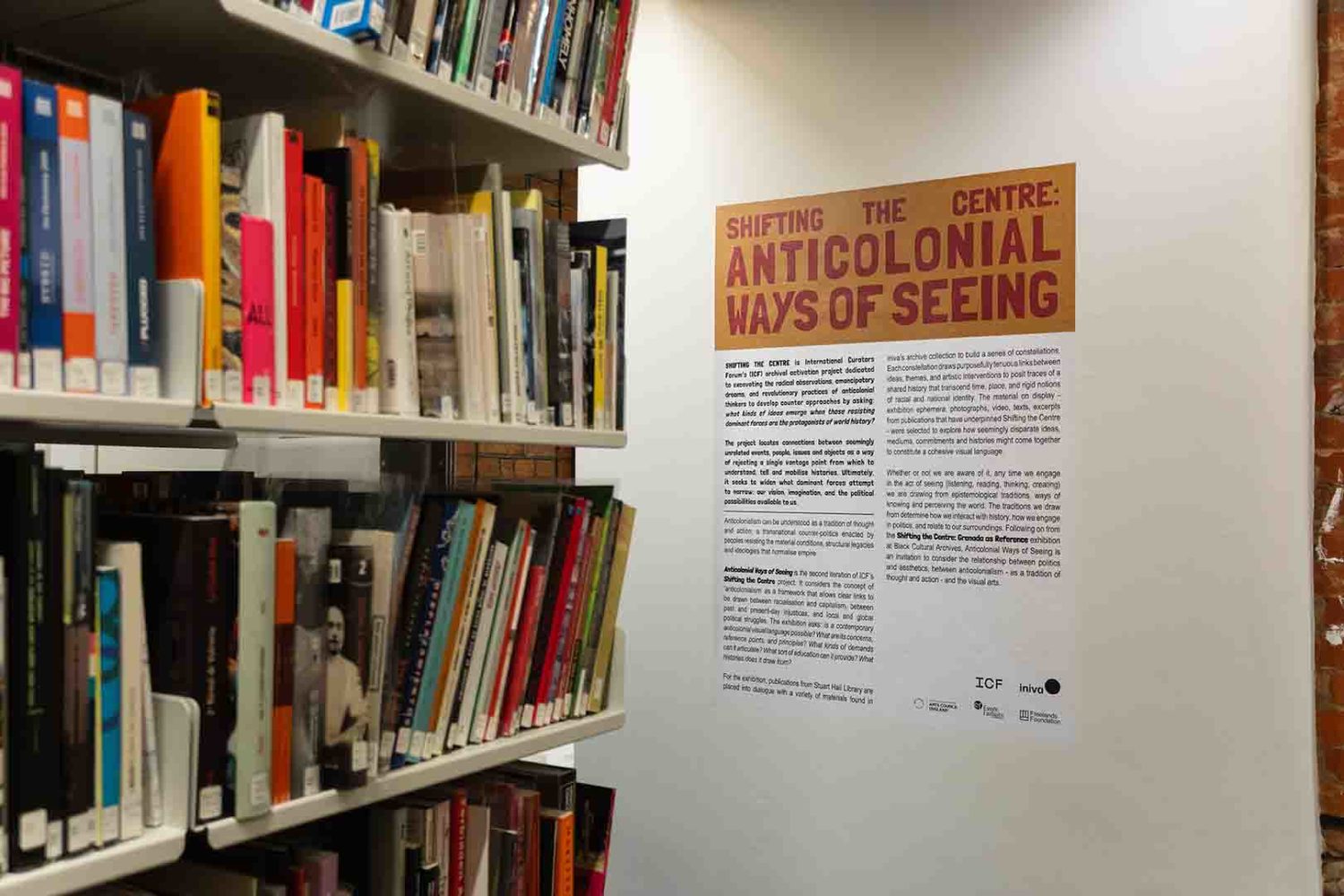
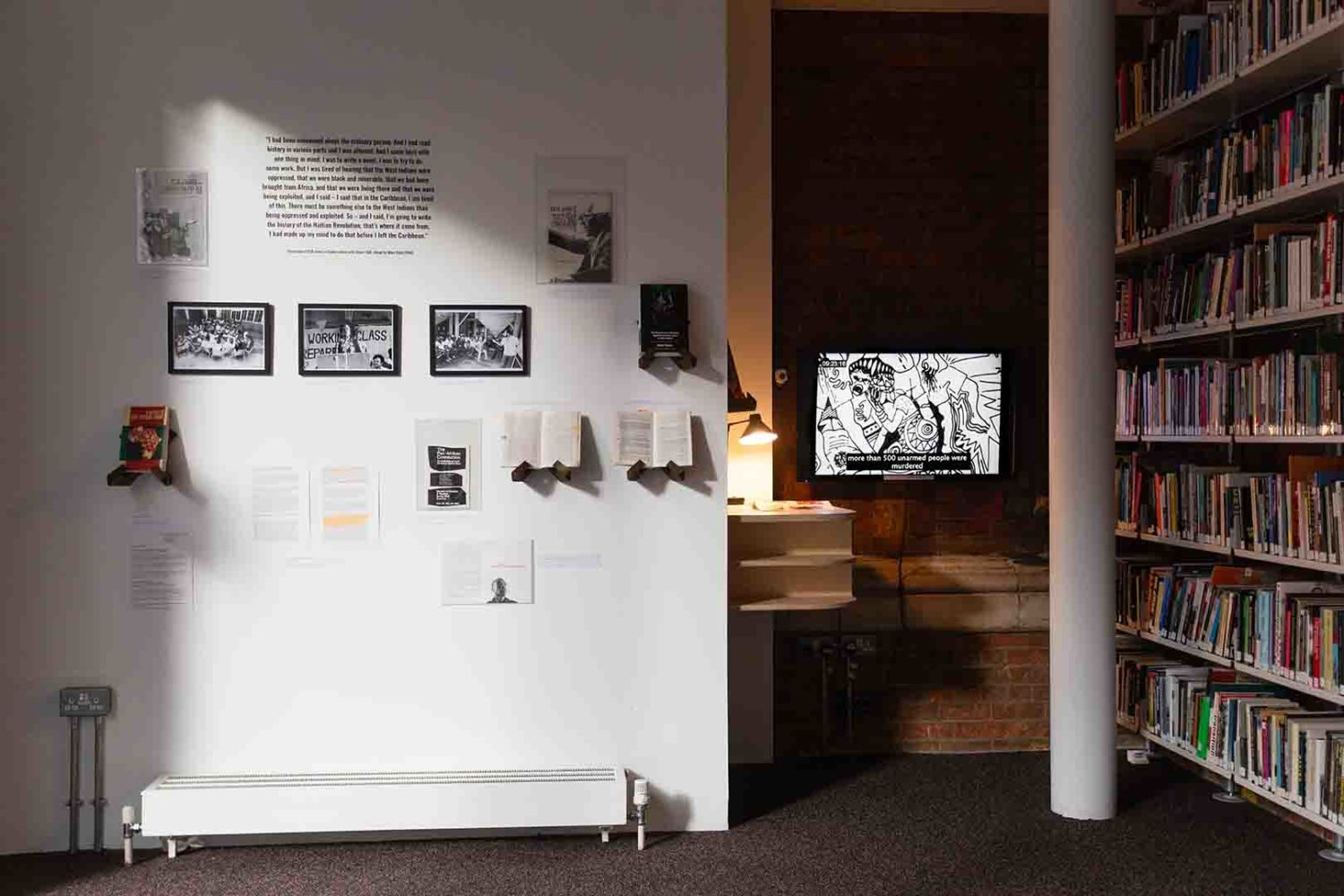
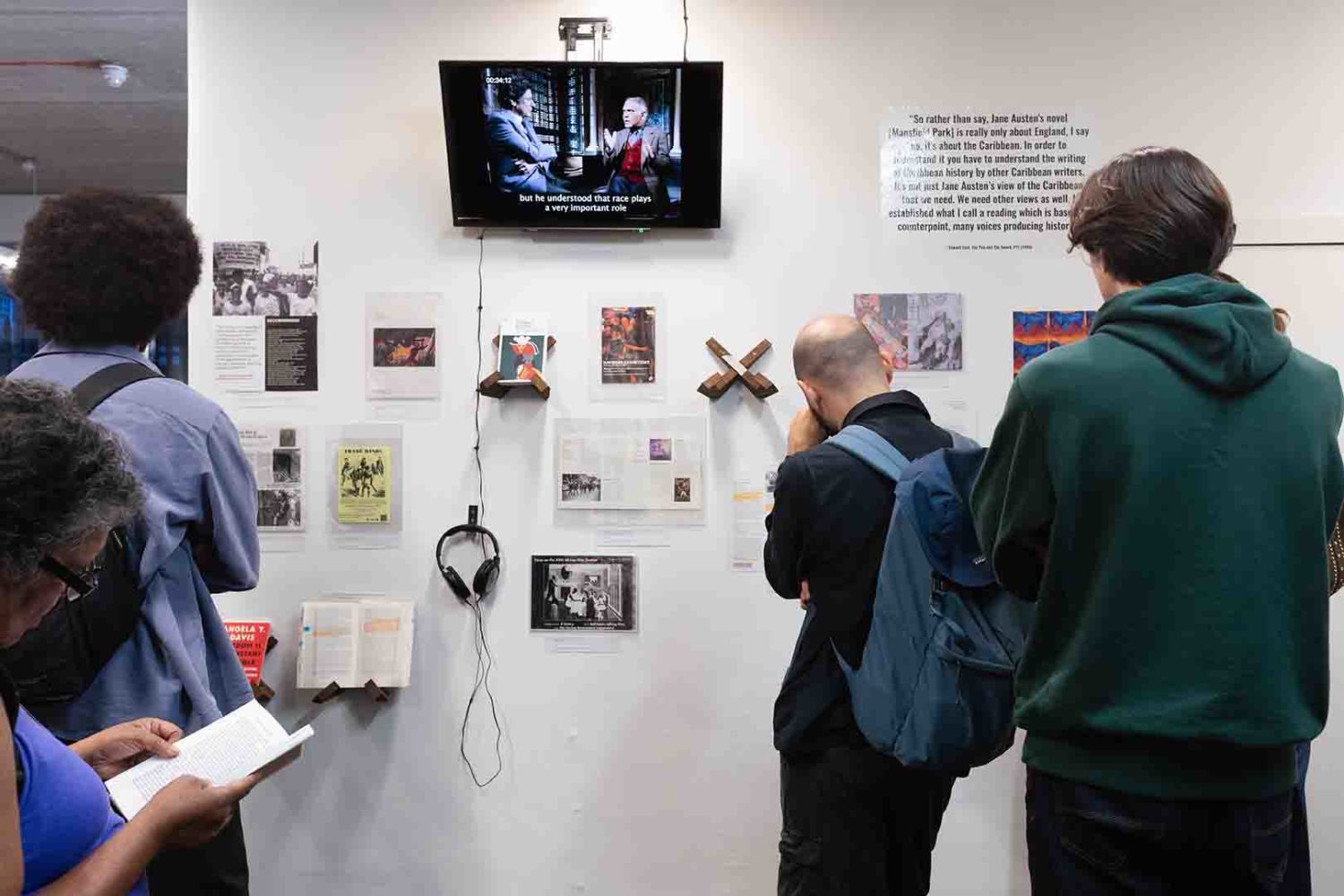
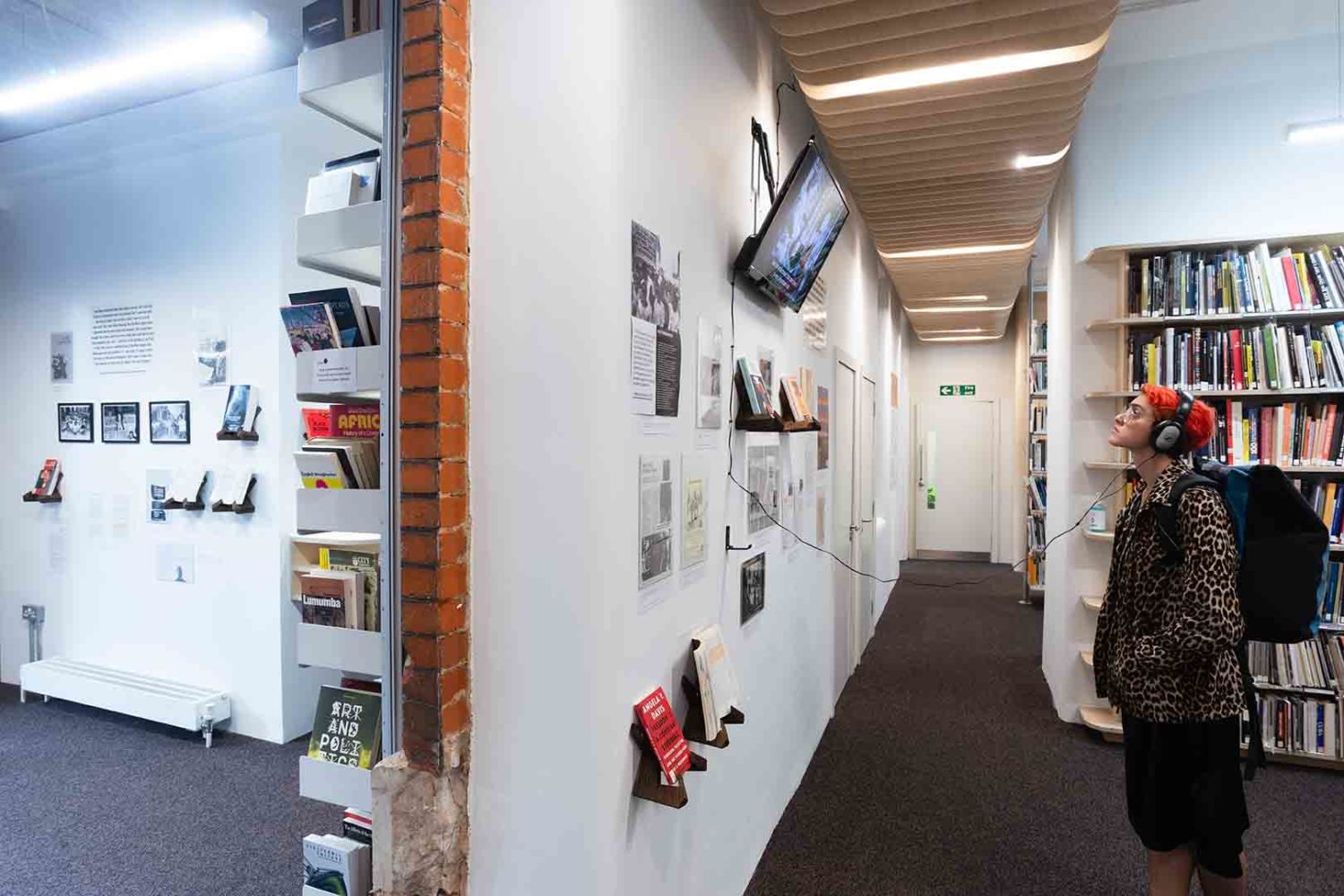
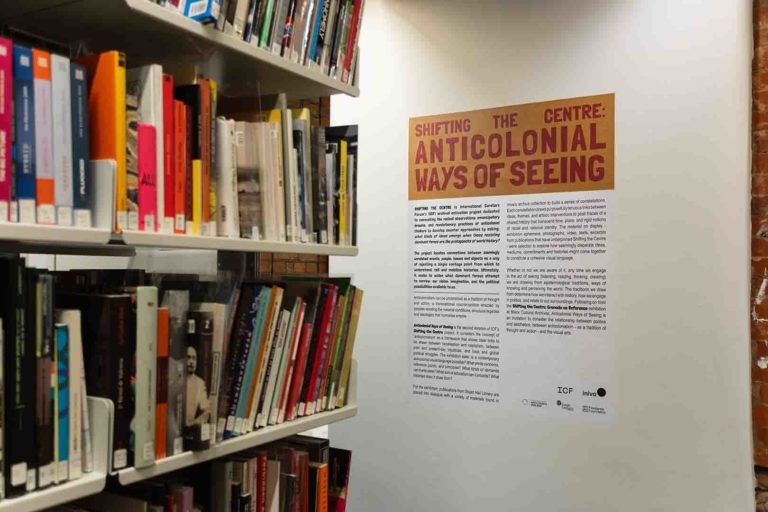
Grenada as Reference
Dates: 16 Mar 2023 – 4 Jun 2023
Location: Black Cultural Archive, 1 Windrush Square, London SW2 1EF
Curated by: Orsod Malik
Presented by: ICF
Supported by: Black Cultural Archives, Esme Fairbairn Foundation, Arts Council England, George Padmore Institute
Grenada as Reference is the first iteration of ICF’s Shifting the Centre project. This exhibition displayed archival materials relating to the Grenadian Revolution (1979-1983) at Black Cultural Archives in Brixton between 16 March – 4 June 2023.
Grenada as Reference invited audiences to think about world history from the vantage point of a small island nation, which was home to the first revolutionary government in the English-speaking Caribbean between 1979-1983. In this relatively brief historical moment, the Grenadian people engaged in a collective process that reoriented their country’s resources, economy, and education away from neo-colonial interests and towards their self-determination.
View Exhibition Page Explore the Public Programme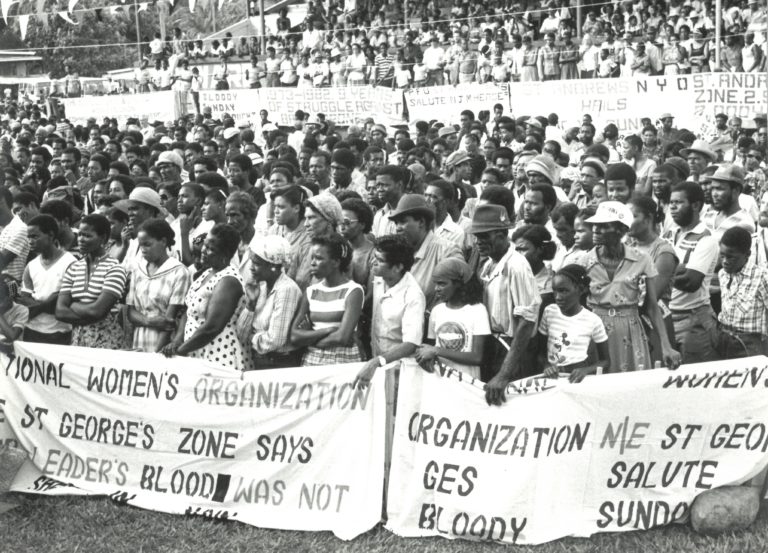
The archival collections on display are portals into this historical moment. A moment characterised by the emergence of Margret Thatcher and Ronald Reagan’s brand of capitalism. This is known today as neoliberalism – an economic system designed to privatise the public sector and transfer the production of consumer goods to the poorest countries at the cheapest possible cost. It was also a moment marked by international political struggles, from waves of working-class protests in the UK to an antiimperialist revolution in Nicaragua, and the making of a new revolutionary society in Mozambique. It is through the archival materials on display that we can witness how people have/can engage in politics and relate to the world.
This exhibition did not rely on a timeline or lay claim to a single sequence of events. Rather, the exhibit enacted a set of open-ended questions: how can these materials be contextualised? What can be learned from them? What silences do they fill and where do silences remain? Are there teachings from this moment that can be applied to our present? And why isn’t Grenada referenced more widely?
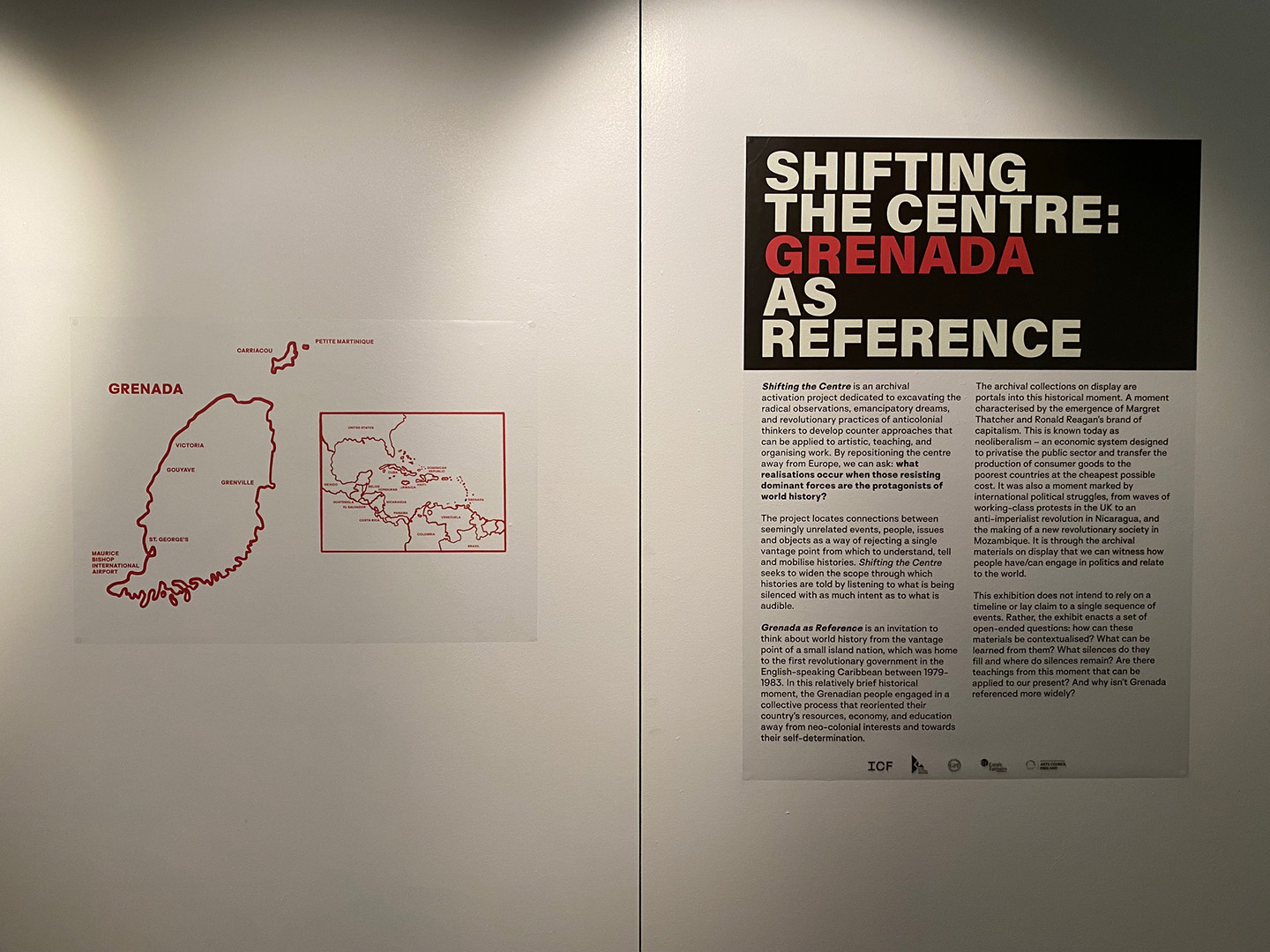
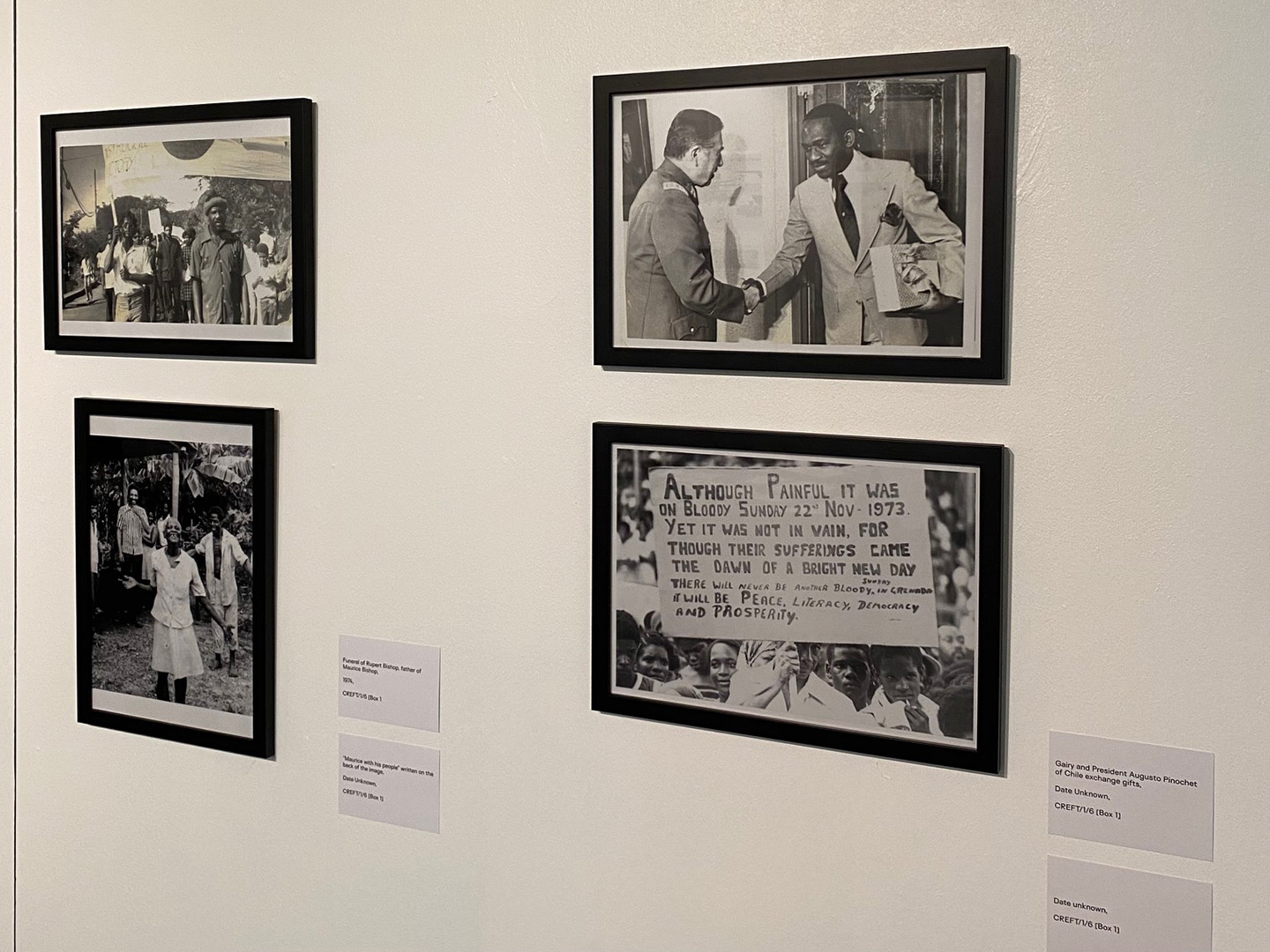


Related Programming
Related Programming


Shifting the Centre: Grenada as Reference Exhibition Video


Shifting the Centre: Anticolonial Ways of Seeing Exhibition Video

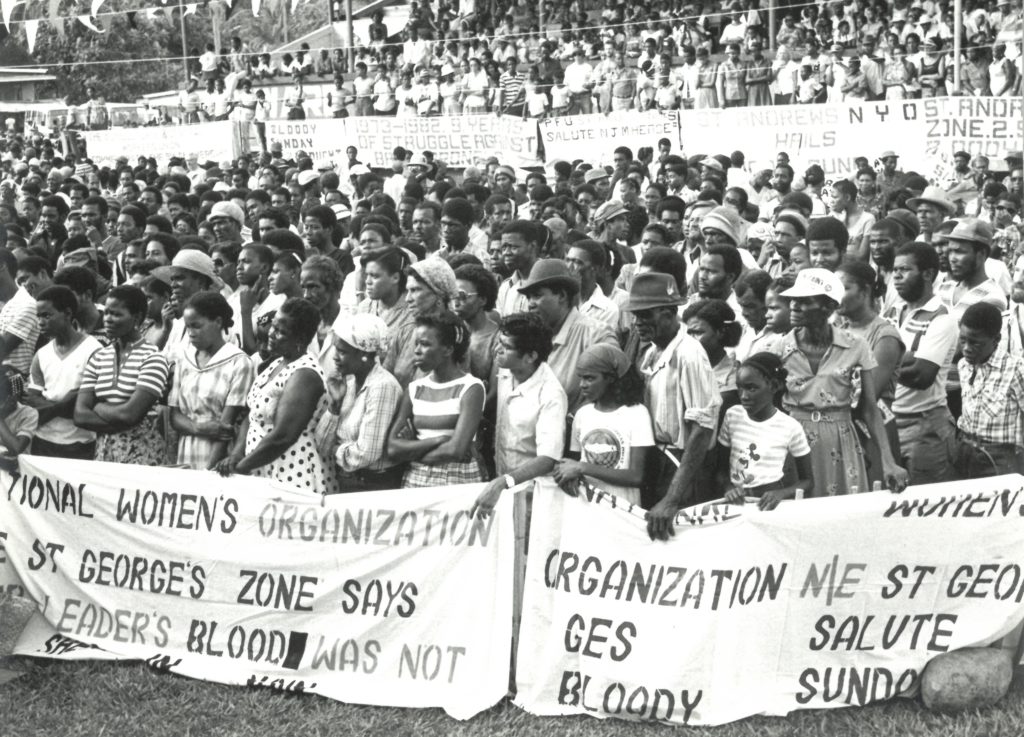
Shifting the Centre: Grenada as Reference (Leaflet)

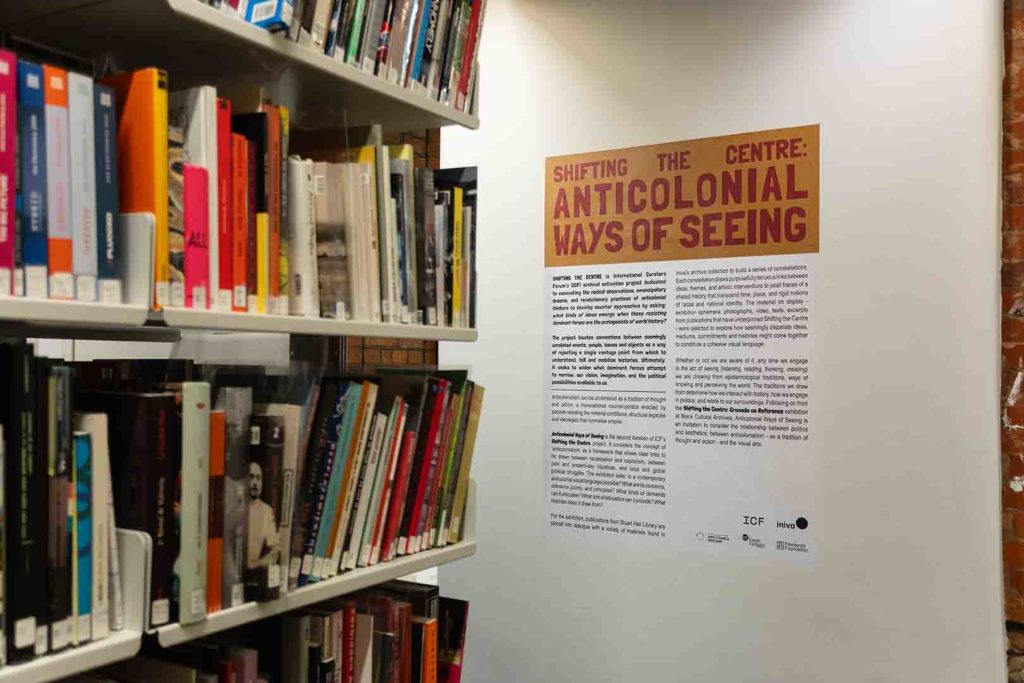
Shifting the Centre: Anticolonial Ways of Seeing (Leaflet)
Partners and Funders




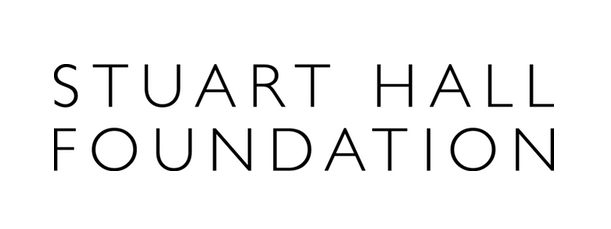

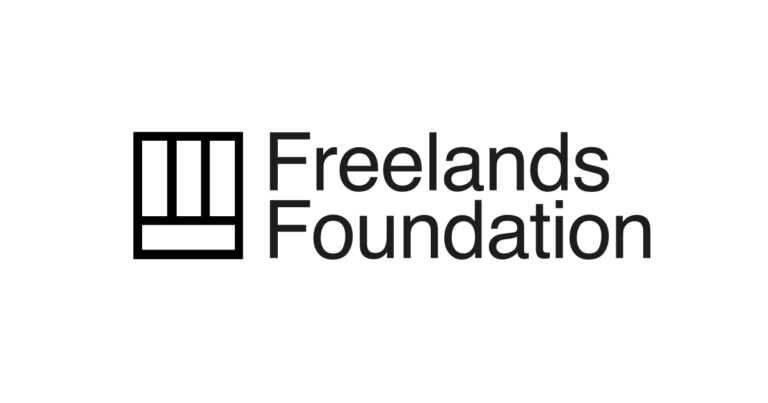
Tags
Explore Further
Explore Further


Shifting the Centre: Anticolonial Ways of Seeing Exhibition Video
